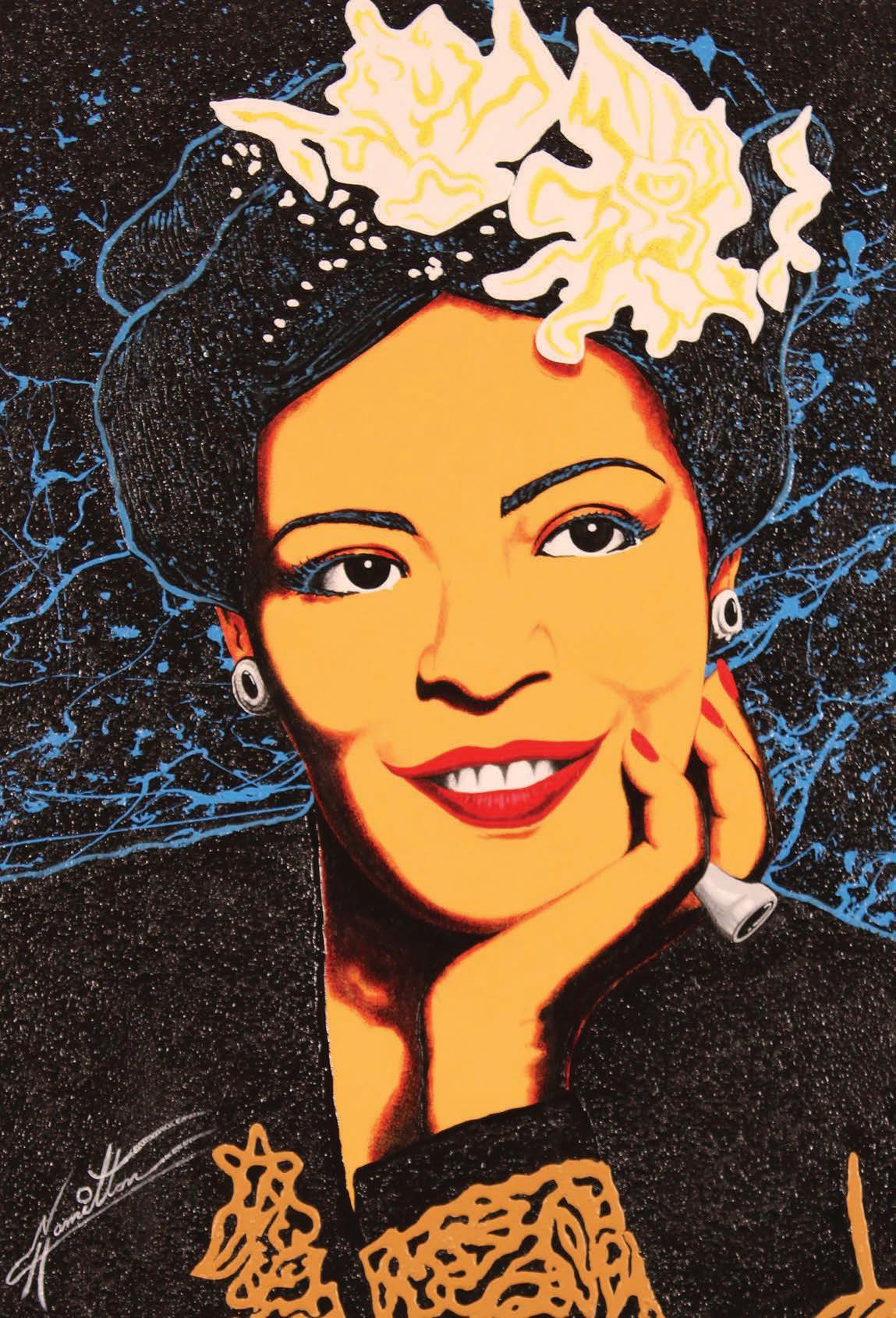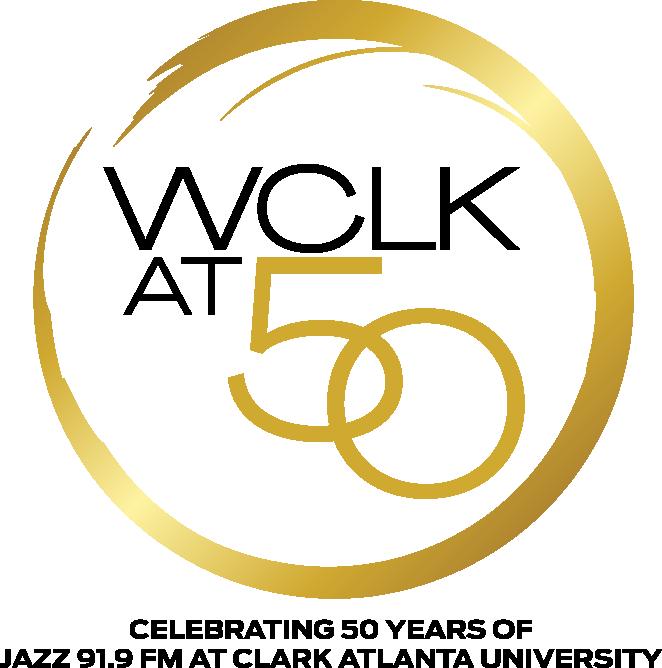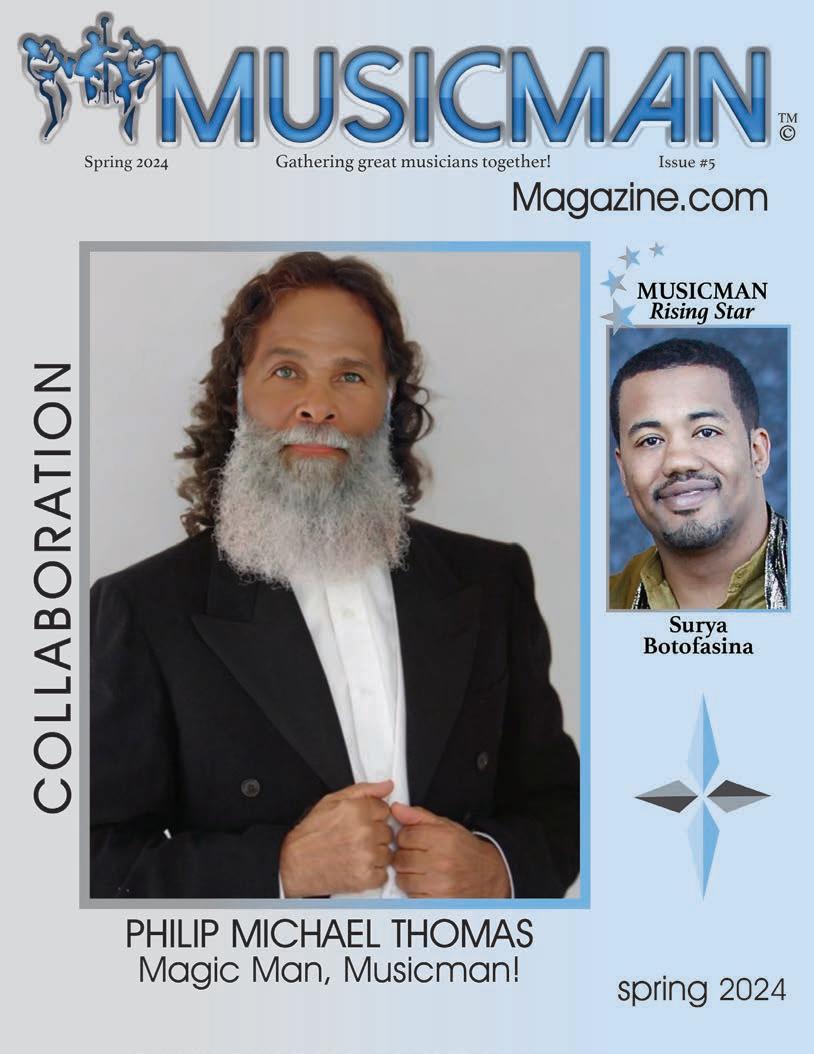











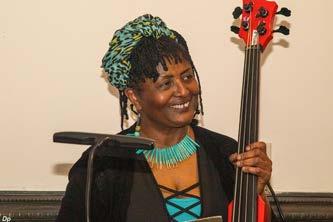




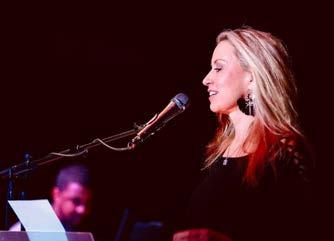



October




























October






15 April 2024
Dear WIJSF Members and Supporters,
I am writing to express my sincere gratitude for the honour of being appointed as the International President of Women in Jazz South Florida. It is with great humility and excitement that I accept this esteemed role, and I am deeply grateful for the trust and confidence placed in me by the organization’s leadership.
I am particularly thrilled about the opportunity to work alongside such dedicated individuals who share a common passion for Women in Jazz South Florida’s mission and vision. Together, I am confident that we are making meaningful strides toward advancing our goals and serving our global community.
In addition to my responsibilities as International President, I am excited to share some thrilling news with you. This October, we will host the inaugural Musicwomen Festival in Atlanta, a landmark event celebrating the extraordinary talent and contributions of women in the music industry. I am delighted to announce that my South African band, JCFI Music Ensemble, has been invited to perform at this momentous occasion.
Bringing JCFI Music Ensemble from Mamelodi, South Africa, to Atlanta, Georgia, for the Musicwoman Festival presents a unique opportunity to showcase the rich cultural heritage and artistic prowess of South Africa on an international stage. We are grateful for this opportunity.
Once again, thank you for bestowing upon me the honour of serving as International President. I am committed to upholding the values and principles of Women in Jazz South Florida with integrity, passion, and dedication, and we are excited to embark on this journey together.

Love and Music,

Sibongile Anna Buda
International President Women in Jazz South Florida, Inc.
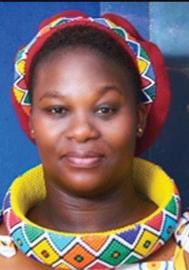


Dr. Joan Cartwright, Executive Director
Women in Jazz South Florida, Inc.
954-740-3398
Support women musicians!
Musicwoman Magazine©®™ TEAM
Publisher: Women in Jazz South Florida, Inc.
Founder/Executive Director: Dr. Joan Cartwright – director@wijsf.org

Creative Director: Dr. Joan Cartwright
Executive Administrator: Mimi Johnson – media@wijsf.org
Social Media: Mimi Johnson; Marika Guyton
Editorial Staff: Dr. Joan Cartwright
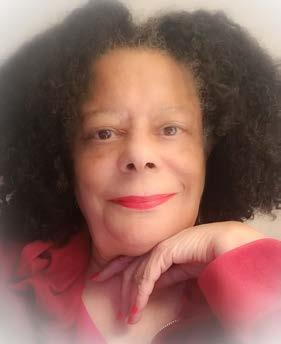
Dr. Joan Cartwright Editor-in-Chief
Creative Team: Jodylynn Talevi, Lydia Harris, Mimi Johnson
Contributing Writers: Dr. Joan Cartwright, Radha Botofasina, Kim Clarke, Lydia Harris, Dr. Gail Jhonson, Mimi Johnson, Kim Jay, Candace Long, Biggi Vinkeloe
Submissions: director@wijsf.org
General Inquiries: info@wijsf.org
Sponsorships: wijsf12@gmail.com
Musicwoman Podcast: www.blogtalkradio.com/musicwoman
Social Media/Website: www.wijsf.org
www.musicwomanmagazine.com www.facebook.com/groups/musicwomanmagazine IG: wijsfglobal www.issuu.com/joancartwright www.twitter.com/wijsf | www.twitter.com/musicwoman
DISTRIBUTION
For sale at Publix Super Markets, Barnes and Nobles Bookstores, and at wijsf.org Complimentary issues can be found year-round at select high-traffic locations and high-profile events through South Florida. Check our website and fb pages for up-to-date lists of events.
Cover photos: FTFSTUDIOSLLC Makeup Artistry by: Dej
Read Spring 2024 online: https://issuu.com/joancartwright/docs/mwm2024
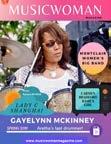
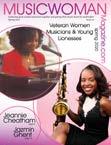
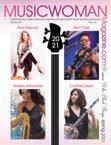
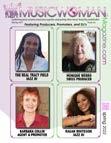
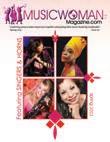

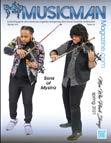
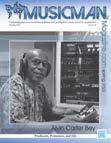
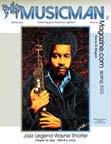

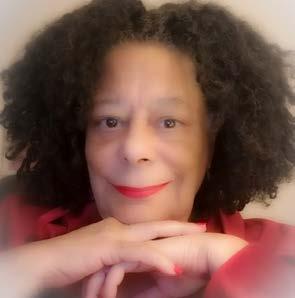
Seventeen years of service is a long time. Volunteerism is the spirit of giving in action. At WIJSF, Inc., one person did the work for 13 years. As of August 1, 2020, she was joined by a staff of professionals, who moved this nonprofit organization forward. This showed us that teamwork is an essential part of any successful endeavor.
Sure, musicians practice and play their instrument, alone. But the real experience is joining with others to bring music to a listening audience. Not every musician has that goal. But, in the sphere of professional musicians who earn their livelihood from producing music, they understand the impact of working with other musicians.
Collaborative music is magical because it allows each musician’s gift to shine within the ensemble. The magic of music are musicians weaving sounds for those who listen. So, the audience is part of the team. Those who hear the music are blessed with it. It’s a chemical concoction – the musicians, the music, and the audience.
Teamwork is essential. At WIJSF, we publish Musicwoman Magazine with the help of a graphic designer, other ad producers, editors, writers, photographers, painters, advertisers, printers, distributors, and our members, who share the magazines with their circle of friends. The best part is the array of women instrumentalists, vocalists, composers, producers, promoters, DJs, filmmakers, writers, and educators, who bring the world their brand of music. Our roster is diverse on so many levels from instrumentation to genre, country to ethnicity, and our 440 members shine on every stage they grace. Our theme of Collaboration is brimming over in this issue!
In October 2024, WIJSF will present the first, annual Musicwoman Festival in Atlanta. This is our opportunity to showcase the variety of talented women and men who understand our mission to promote women musicians, globally. We’ve gathered young artists who have made themselves known in this very cultural community.
While my daughter, Mimi Johnson works on the inner level with branding, marketing, promotion, and social media, my granddaughter will host the festival, along with two rising stars. Their visibility on social media is phenomenal enough to attract a diverse generational audience to enjoy the music of women musicians and composers like Sibongile Anna Buda from Mamelodi South Africa, our International President, who is bringing the JCFI Music Ensemble to Atlanta on Saturday, October 19, 2024. Members from Florida, New York, North Carolina, California, and Georgia will perform. Two young men - Jarvis Evans (vocalist) and Eric Antoine Giles (sax) will be featured. This is how we are celebrating longevity and teamwork!

Dr. Joan Cartwright, Editor-in-Chief Founder/Executive Director
Women in Jazz South Florida, Inc. http://wijsf.org
Women in Jazz South Florida, Inc., is a 501(c)(3) non-profit, educational organization that promotes women musicians, globally, through events, concerts, performances, clinics, lectures, workshops, articles, interviews, newsletters, courses, contacts, research, history, archives, websites, film, audio, and video recording, and recognition.
Gathering great women musicians together and getting their music heard by multitudes!

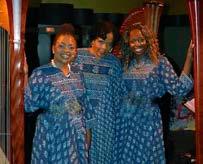
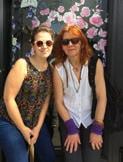
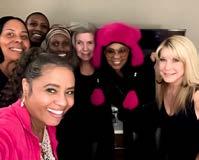

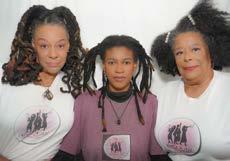


I discovered Castella through her music. On my radio show, The Pink Room, on Solar Radio/London, I play music from great artists, especially from my musical friends. Sandy Shore at Smooth Jazz Global sent me Castella’s music, requesting spins. Track after track, I was impressed with what I heard. Her voice is powerful and warm, and the melodies and choruses are catchy. I knew I had to collaborate with her! This is my interview with Castella about our collaboration.
What is the collaborative project between you and Dr. Gail Jhonson?
Gail and I collaborated on a composition, On the Road to Your Heart, composed by Sheryl Aronson. Gail and Britt Prentice rearranged and produced the song. She called me to ask if I wanted to do a duet. It was an automatic YES! Gail challenged me to show a different side of my voice, making it a wonderful experience and an excellent recording.
What was the process?
Gail and Britt Prentice sent me a demo of them singing the song. I learned it and executed it in two sessions. We completed the song in one session but tightened up the music in a second session because I am such a perfectionist. Ultimately, it was a straightforward process, and my assignment was to execute Gail and Britt’s vision with my performance.
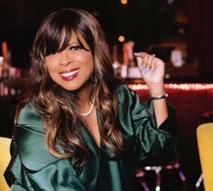
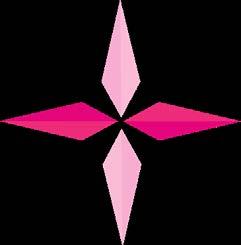
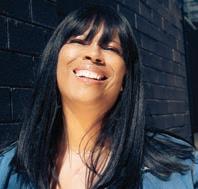

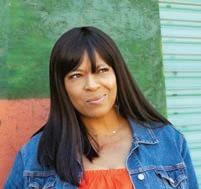
Was it a different experience sharing musical ideas with a woman?

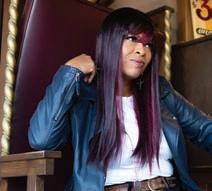
Absolutely not! Gail is a well-respected musician. She is very collaborative. She listened to my ideas for the tune. My mentor and producer, Darryl Swann, thought it was cool that a woman had arranged and engineered the song. I did, too!
Have you ever collaborated with women in critical positions in your business?
Yes, indeed, I have! On my music journey, my daughter Cailyn Thompson is my manager, photographer, stage manager, and overall assistant. As a result, she has learned the music business. She speaks for me, when I am preparing for a show to assure that I have everything I needed, during photo shoots and performances. It has been beautiful growing my business with Cailyn on my team.
Are you an entrepreneur?
Yes. Five years ago, I launched Castella Music, my record label and production company. I manage all aspects of recording, distribution, radio promotion, and shows. Collaboration is the key to success. I work closely with my producer, radio promoter, and venue owners. I discovered that I am driven. I played it safe in my career, until music came. I have grown in ways I never thought I could because music is my passion!
Would you recommend women collaborate more or less?
Women should collaborate more! Ultimately, it’s about positive energy and relationships, regardless of gender. A mutual friend introduced me to Gail, and we connected, instantly. The positive energy was there, and we have a great friendship, now! I respect her gift, and I am in awe of her talent. The opportunity to be with her onstage is amazing. It’s a gift! I met many women in the music industry and am elated every time I get a call to work. I am always thinking of ways to collaborate with my sisters.

Did the collaboration initiate or enhance a sisterhood?
Oh yes, Gail is my sister! I was so excited when I got my first call to join Jazz in Pink for a performance! I felt like I was invited into a special sisterhood. It was a rite of passage. Dr. Gail Jhonson is so respected in the industry. If she invites you in, that means there is something special about you that she likes. I have a badge of honor, being a lead vocalist in Jazz in Pink.
How important is it for women to collaborate?
It is crucial for women to collaborate. We need one another! We all have something unique to bring to the table. Collaboration is a sign to the world. We know how to lean on one another and work as a team.
Castella is on the move, making a name for herself in the Adult Contemporary and Smooth Jazz circles. She is quite at home onstage, so look out for a performance in your city. I am sure we will be hearing more from Castella. Find her music and videos on YouTube and other digital platforms.
-Dr. Gail Jhonson, Contributor -Musicwoman Magazine
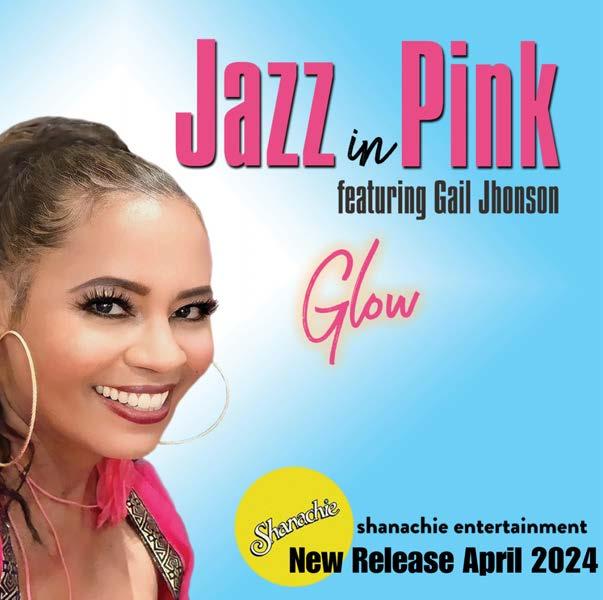
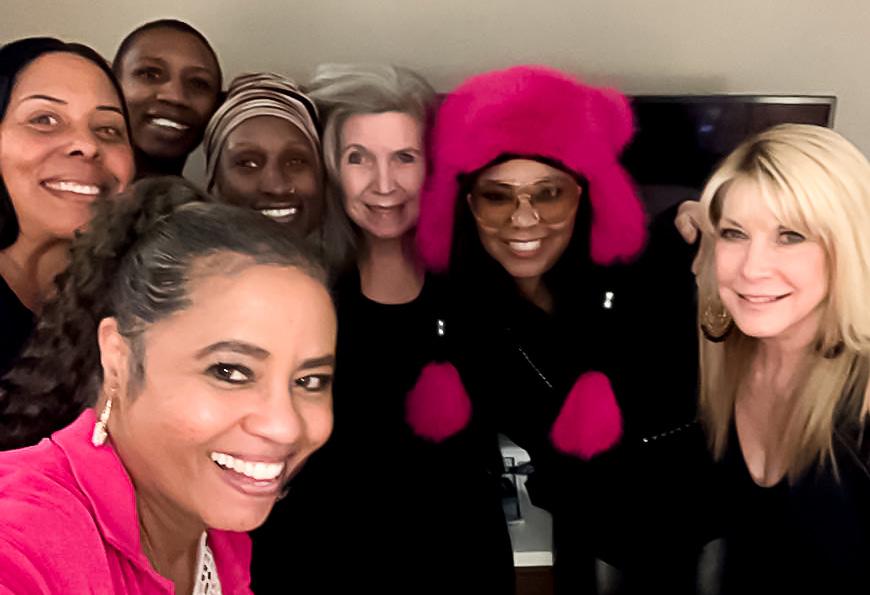
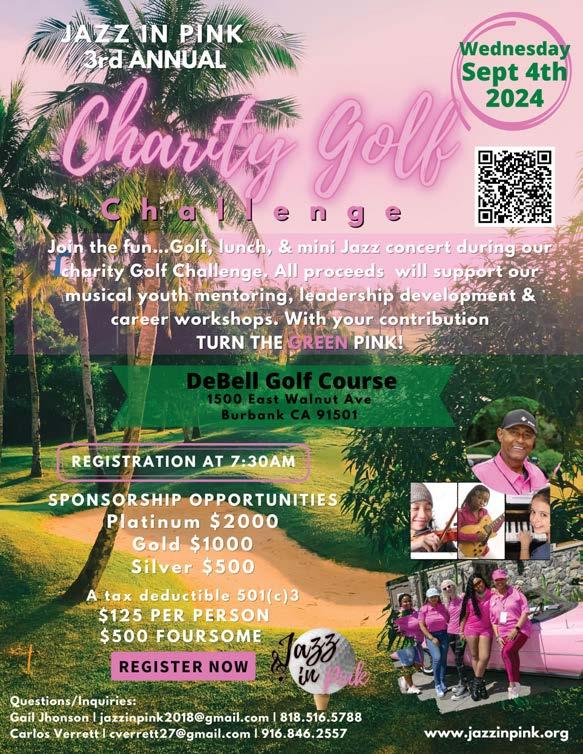
Dr. Gail Jhonson (Musical Director)
Jessie Laine Powell (Vocals)
Brooke Alford (Violin)

Keyanna Hutchinson (Guitar)
Diane Dayton (Journalist)
Tiffany Worldwide Walker (Drums)
Paula Atherton, (Sax, Flute, Vocals)


This dynamic lady in Austin, Texas, has been contributing to the jazz scene for 30 years, with her company Hartbeat Productions for the Women in Jazz Association, Inc. I had the opportunity to collaborate with Pamela and her team ten years ago. She hosted a workshop, by The Women in Jazz Concert Series, for local students, and invited Jazz in Pink to be a part of the afternoon event, before our evening performance. It was a rewarding experience for our me and my band members, violinist Karen Briggs, flautist Althea Rene, bassist Robin Bramlett, drummer Pockett Brown, and guitarist Darlene Moreno.
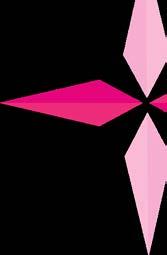
Pamela Hart’s powerhouse vocals and stage confidence has earned her the recognition she deserves in traditional and smooth jazz. In November 2023, we enjoyed collaborating in Austin, again, to celebrate women in jazz. It was an impressive experience for me, Jazz in Pink, and saxophonist Grace Kelley. Our finale, I’m Every Woman, the Chaka Khan classic, was a fitting closure for Pamela and her special guests.
I had the pleasure of catching up with Pamela to discuss the collaboration of women in music and the impact jazz is having on young women artists, and to thank her for her dedication to the genre, particularly, supporting women in jazz.
What is the collaborative project between you and Dr. Gail Jhonson?
Dr. Gail Jhonson and I collaborated on the Women in Jazz Concert Series featuring Jazz in Pink.
What was the process?
I knew that Gail Johnson was the musical director for Jazz in Pink. They are an outstanding and rare all-female jazz group. This formation supports our organization’s mission to keep jazz alive and increase the presence of female musicians in the jazz genre.
Was it a different experience, sharing musical ideas with a woman?
It was different working with a woman leader. Women are surer of what they want, so the conversation is more direct, and solutions occurs faster. In the case of Dr. Gail Jhonson, she comes with a total package as a producer, music director, pianist extraordinaire with great leadership skills. I respect for her work and never question whether she will deliver an outstanding show with professionalism and grace.
Have you ever worked with women in critical positions in your business?
I worked with other producers, with the Board of Directors of the Women in Jazz Association, Inc., and with other female musicians. The best experiences are when the sisterhood is real, and everyone is free to share their talents and experiences.
Would you recommend women to collaborate more or less?
Women should collaborate more. Through collaboration, women are stronger to build better products and provide better services.
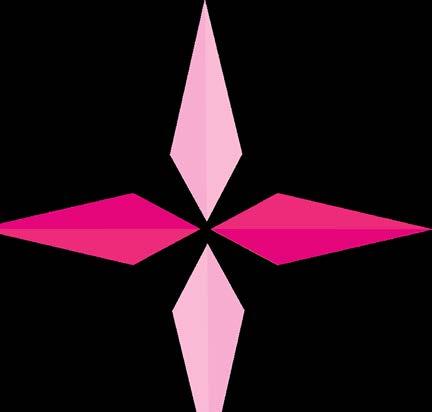
They bring a range of perspectives based on their unique experiences. The benefits include:
• Improved Communication: Women excel in communication skills, making teamwork and collaboration more effective. They use inclusive language and are attuned to the nuances of team dynamics that foster a collaborative environment where all voices are heard.
• Enhanced Emotional Intelligence: Women have high emotional intelligence. They can read emotions and navigate interpersonal relationships. This creates better conflict resolution and a more harmonious work environment.
• Greater Empathy allows team members to understand and share the feelings of others, fostering a supportive and positive working environment with higher levels of morale and job satisfaction, and less turnover.

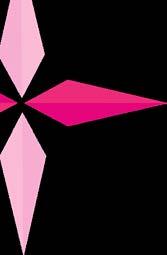
• Leadership and Mentorship: Collaboration among women creates opportunities for leadership and mentorship, empowering women to take on new challenges and advance their careers. This benefits the individuals involved, while breaking the glass ceiling.
• Increased Productivity and Performance: Research showed that genderdiverse teams outperform less diverse groups. The combination of business skills, marketing perspectives, and problem-solving creates higher productivity and better performance.
• Networking and Support Systems: Collaboration provides opportunities for women to build strong networks and support systems that offer resources, advice, and opportunities not accessible, otherwise.
• Enhanced Problem-Solving: Diversity in collaboration brings together varied approaches to problem-solving, affecting more effective solutions. Women introduce alternative methods and strategies, leading to more innovative outcomes.
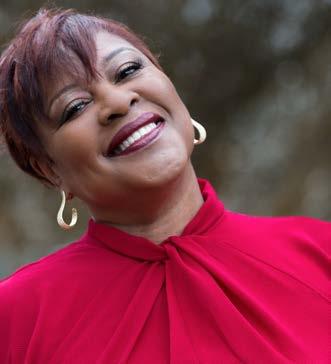
• Positive Social Impact: When women collaborate, they address issues impacting women, leading to social change. This includes promoting gender equality, improving policies affecting work-life balance, and supporting women’s rights.

• Inspiration for Future Generations: Successful collaboration among women sets a powerful example for future generations, showing that gender should not be a barrier to achievement. It inspires girls to pursue their dreams and work to overcome obstacles.
Did the collaboration initiate or enhance a sisterhood?
The relationship with Dr. Gail Jhonson and Jazz in Pink fostered an ongoing presence for Jazz in Pink in Austin. I love to watch and learn from Gail as she directs the band and conducts business.
How important is it for women to collaborate?

Collaboration extends across multiple dimensions, impacting individuals, organizations, communities, and society-at-large. Other benefits of collaboration are:
• Breaking Down Gender Barriers: Collaboration among women challenges and dismantles systemic barriers that women face. By working together, women amplify their voices, advocate for gender equality, and create more inclusive spaces.
• Empowerment and Confidence-Building: Collaboration empowers women, increasing their confidence, particularly, in environments where they are marginalized. Collaborating with peers inspires women to pursue leadership roles and engage in decision-making processes.
• Innovation and Creativity: Diversity drives innovation. Collaboration brings diverse perspectives, ideas, and experiences to the table, leading to creative solutions and innovation. Diversity is crucial for tackling complex problems in a rapidly changing world.
• Personal Growth and Learning: Collaboration enables women to learn from each other’s experiences, skills, and knowledge, contributing to their personal and professional development.
• Economic Growth: There are significant economic benefits to women collaborating. Greater gender diversity within organizations and businesses improves economic wealth.
• Global Development: Collaboration contributes to the global development of gender equality. By working together, women address global challenges to create an equitable and sustainable world. The importance of collaboration cannot be overstated. It is a powerful catalyst for change, driving social, economic, and cultural progress, while fostering personal growth and empowerment.
Pamela Hart and The Women in Jazz Association, Inc. provide these benefits to the world of jazz in Austin, Texas, while fostering environments that support and encourage collaboration among women. Pamela Hart recognizes the unique strengths and contributions of her team. It has been a pleasure and an honor to work with Pamela. I am happy to be on this journey alongside her, as we building a legacy for the next generation of women in jazz.
-Dr. Gail Jhonson, Contributor - Musicwoman Magazine
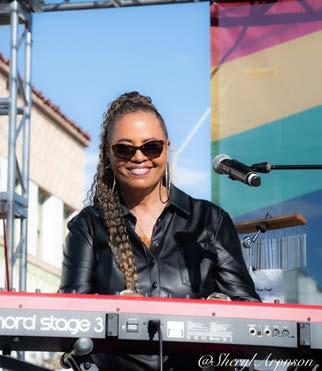
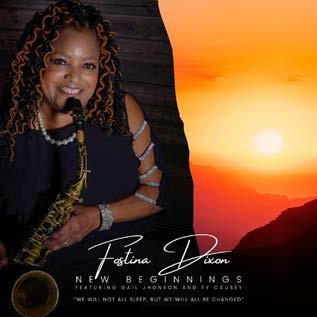
After many years, Fostina and I rediscovered each other, since the college days at Berklee College of Music in Boston, Massachusetts. I admired her, then, and knew she was a heavyweight musician, always coming and going to rehearsals. Our collaboration did not start until much later, for I was still learning the cycle of fifths and she was already working with Jazz greats Buddy Collette, Frank Foster, and Andy McGhee. Later, she embarked on a world tour with the Prince of Soul, Marvin Gaye.

It gave me great pleasure to meet up with this lady composer, educator, vocalist, entrepreneur, and woodwind player of the soprano, alto, and baritone saxes. Additionally, she plays flute and clarinet, and was a guest soloist with late legends Abbey Lincoln and pianist Barry Harris. Collaborating with a female artist with such drive and passion for music gave me a sense of pride. I realized that her tenacity brought her this far. In a male-dominated musical environment, women have to find their place, and keep pushing forward. While reflecting on my interactions with various talented female artists and musicians, Fostina Dixon is a notable collaborator.
I seized the opportunity to reconnect with Fostina for her musical project New Beginnings (2015). The collaborative process involved listening, talking, laughter, track bouncing, patience, and a shared commitment to capturing the essence of the musical message. Asked if it was a unique experience in sharing musical ideas with a woman, Fostina shared, “It was easy sharing with Gail because of her experience and musicianship. However, I do believe that her maturity as a woman made it even better!”
Although Fostina has not had many experiences collaborating with women songwriters and producers, she considered it a privilege. As an entrepreneur, Fostina stressed the importance of collaboration and recommended that more women collaborate. She said, “For me, in my heart of hearts, that CD was a new beginning for me to just be who I am, and to be the best that I can be.”
Dixon said. “My inspiration for putting out this CD was my passion for music. I like playing music. It is important to stay visible to your fans, and when you have written enough music, you should document it. Ten years from now, I will have something to show where my heart and mind were at that time in my life.”
New Beginnings was produced by Fostina Dixon, Dr. Gail Jhonson, Bill Jolly, and Dennis Fortune. It showcased her beautiful musical mind at work. The moods and grooves range from the bouncy opener, A Better Way, by Dixon and Jhonson, to Dixon’s cool cover of Leave the Door Open, the Bruno Mars/Anderson Paak/Silk Sonic soul ballad. The quiet storm track For Your Love features Causey’s caressing vocals, also featured on the anthemic Momentum. Sketched and Creek Lane showcase Dr. Gail Jhonson’s piano solos. Other standout tracks include the mellow-toned Sunburst and Latin-tinged Nevertheless.

Our collaboration resulted in a successful musical project and fostered a lasting sisterhood. Fostina emphasized the significance of nurturing relationships to aid others in becoming their true selves. She contended that, “Life is about developing good relationships to help someone else become the human God intended them to be, and to help make you complete and whole as well.”
Fostina expressed a desire for continued collaboration, extending an open invitation to collaborate with both men and women. See more at her website www.fostinadixon.com, fossiebear@comcast.net, and digital and social media platforms. ~ -Dr. Gail Jhonson, Contributor - Musicwoman Magazine


by Dr. Gail Jhonson

Collaboration is a vital tool for artists and musicians, especially female creatives seeking growth and success in the male-dominated music industry. When I reflected on interactions with talented female artists and musicians, one notable collaborator was Sonjia Hubert Harper, SAG-AFTRA performer whose stage name is Maia.
Maia was the co-founder of the first all-woman instrumental ensemble of the internationally- known Association for the Advancement of Creative Musicians (AACM) in Chicago. They performed and toured from 1991 to 1999, and Maia was the bandleader. Before the band was established, she collaborated with multidisciplined female artists. Maia was a birth worker and educator from 1974 to1989. Her destiny was working and collaborating with women.
I vividly recall attending Maia’s show in Hollywood, California, hosted by Delores Peterkin. Maia’s exceptional originality shone through as she sang, played the flute, and danced with captivating grace. Her beautiful smile and gaze captivated me and the packed audience in some magical place. I was very happy that Maia’s granddaughter, Aanhka extended the invitation to that powerful performance. Aanhka Neal, my adopted godchild, is a rising star, today.
Reconnecting with Maia was an opportunity I seized for a musical project with a multifaceted artist proficient in flute, acting, vibraphone, harp, entrepreneurship, and education. In 2015, I composed Vibe, featuring Jimmy Haslip on bass. I thought it would be great to have live vibes on the track, so I invited Maia to play vibraphone.
Our collaboration took us to Talented Studios in Los Angeles to record under the expertise of radio presenter, saxophonist, and studio engineer Mike Parlett. Working together on my CD New Beginnings (2015) was a delightful experience. Maia’s contribution to the composition set a real vibe to the track.
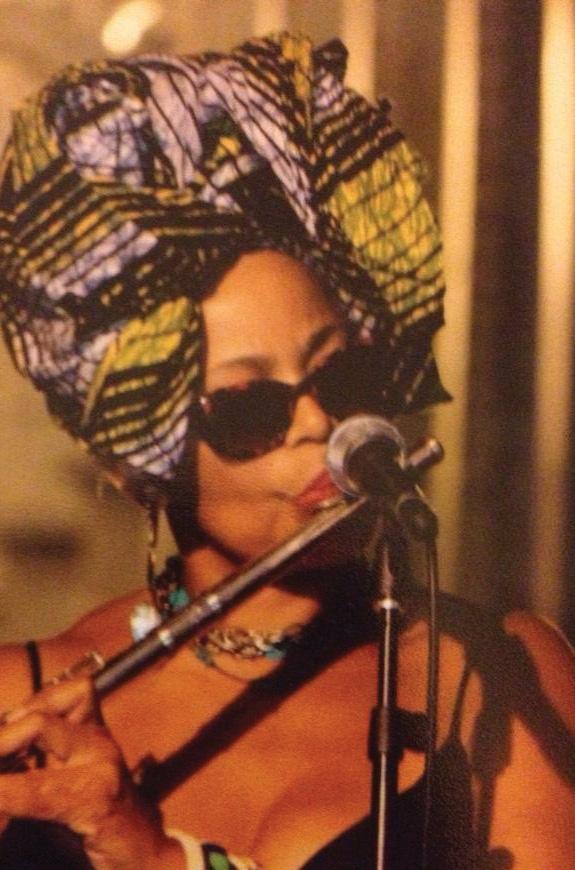


Maia, what was the collaborative project between you and Dr. Gail Jhonson? New Beginnings CD (2015).
What was the process?
Gail hired women musicians and vocalists to perform her original tunes. We performed our music in a professional setting. We rehearsed the material, then presented it in concert.



In retrospect, was it a distinct experience in sharing musical ideas with a woman?
It is always different when sharing with a woman as opposed to sharing with a man. As the old adage said, “Men are from Mars. Women are from Venus!” I have found this to be true and adjust, accordingly. So different, yes. I come from a family with four sisters and one brother. I navigate well with women. Gail is easy-going, very professional, focused, fun and very giving in the way that she shares her stage.
Have you ever collaborated with women in critical positions in your business?
I was co-founder of the first all-woman instrumental/vocal ensemble of the AACM (the Association for the Advancement of Creative Musicians) in Chicago, Samana. My other co-founders are internationally renowned flutist, Nicole Mitchell and renowned sitarist/bassist/storyteller, Shanta Nurullah who have both branched out with other groupings (as have I). We performed and toured together for eight years in the 90s, adding to the group of the three of us up to each other, female instrumentalist, singers, and dancers to various presentations. There are certain aspects with communicating with audiences through feminine energy that affects people very differently than when I perform with all male energy of my genre, which is jazz. Women’s musical dialogue is just as different from men as our needs and desires. It is not about less amor for me. It is about the differences in texture and intention on stage, and in our lives. Sisterhood is top-tier priority in my life.
Are you an entrepreneur? Yes
Would you recommend women to collaborate more or less?
I recommend that women collaborate more. It has become a necessity in this time because our voices are attacked in government, constantly. There is power in numbers.
Did the collaboration initiate or enhance a sisterhood?
My sisterhood bond with Gail was already set. She and my daughter were good friends when I met her, and her daughter and my granddaughter are best friends. We clicked upon meeting, in the early 2000s, before we collaborated, musically.
How important is it for women to collaborate?
When women gather, the sound of laughter, the oooo’s and the aaaah’s of it, the rhythmical pattern of our movement and the harmony between our hearts and voices are important to experience as women. If you do not know, you need to know. I truly believe this. I know it from my experience as the band leader of Samana. There is nothing like it. The challenges and the triumph of sharing blood, sweat, and tears are unmatched.
Contact, sharper7778@gmail.com and across various digital and social media platforms.
-Dr. Gail Jhonson, Contributor - Musicwoman Magazine

Collaboration is a time for the meeting of the minds, sharing musical ideas, and an opportunity to understand the creative process of others. Collaborating with Jessie on a recording project was a fun, cool, yet unique experience. She liked my instrumental music, heard a different spin on it, and wrote lyrics to the track! Jaco Pastorius’ composition “Rain” and the collaboration with the R&B vocal group SWV was the only time I can recall that kind of collaboration. Both were excellent versions of the same melody, with different interpretations, heard through different lenses.
I had the chance to catch up with Jessie. This latest recording project is a milestone for her. I am glad I could be a part of her musical journey, and I look forward to many more to come.

What is the collaborative project between you and Dr. Gail Jhonson? “ Fire and Ice” is a song about me and my husband’s relationship, and the single “Live Your Life” is an anthem for every dreamer to pursue their dreams.
What was the process?
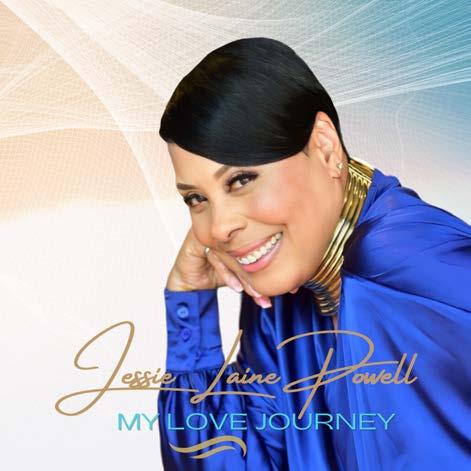
JLP Music Global purchased the licenses to record two songs from Dr. Gail Jhonson. Both compositions had previously been released as instrumentals on her project. My management suggested one song they felt would appeal to me and my audience and would be a perfect addition to my upcoming album. Taking the song and creating a lyrical story to weave in with the melody was fun. Gail gave me the freedom just to make. We both were delighted with the outcome. Both songs will be impactful to the listener.
In retrospect, was it a different experience in sharing musical ideas with a woman? No, not really. I do not look at gender when collaborating. The process was easy. This has been my experience. It is always a pleasure to feel that” girl power” and experience hands-on, gifted female musicians.
Have you ever collaborated with women in critical positions in your business? No.
Are you an entrepreneur?
Yes. I am the CEO of JLP Music Global, creating healing music that brings hope, love, and transformative change in the world as a singer/ songwriter. I am also the founder and creator of Dream Manifestor, a Instagram platform created as a beacon for individuals seeking to unlock their dreams. We all have them, or we all should. Not just holding dreams on the inside but manifesting those dreams into reality. I desire to inspire dreamers through my journey by being a template. Every dream matters, and there is a place for them all.
Would you recommend women to collaborate more or less? I would always say more collaboration is calibration to elevate our gender.
Did the collaboration initiate or enhance a sisterhood?
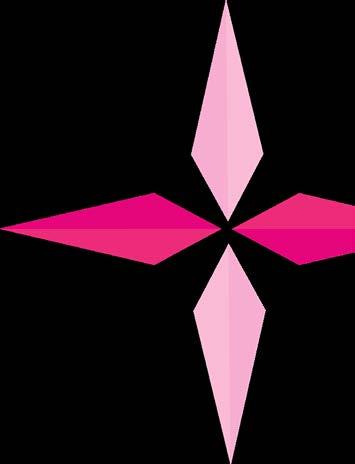
It truly enhanced and grew into a sisterhood and a mutual respect for each other’s gifts, talents, and drive for change. When you as a woman can appreciate and support another woman openly and honestly, we are then

embracing the best of who we are individually and corporately, creating a safe space for other women to breed positive change.
How important is it for women to collaborate?
It is my opinion that collaboration is extremely important. It is not a competition… it should be a sisterhood.
We must be that example and remove the stigma that women cannot achieve remarkable things together. We can create beauty and build together in the musical field or any other profession. Women are the cornerstone of creation and the glue that holds it together.
It was great to hear that Jessie is open to collaborating with other women, whether as producers, writers, graphic artists, or arrangers, where women are increasingly becoming more prominent in the male-dominated music industry. All the best to Jessie Laine Powell. Look for her new CD, My Love Journey, streaming on all digital platforms.
-Dr. Gail Jhonson, Contributor - Musicwoman Magazine
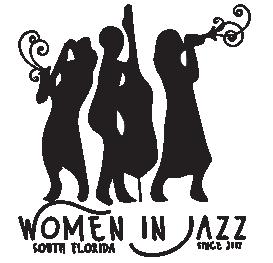

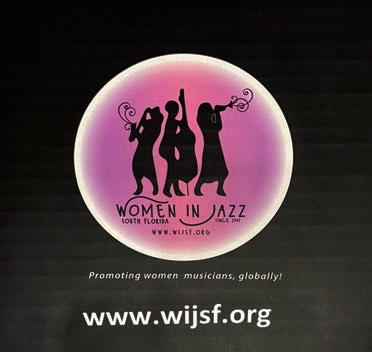

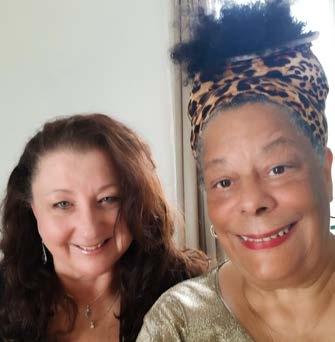
Jodylynn Talevi & WIJSF Elite
Jodylynn & Joan met in person
NYC 05.24.24
Collaboration is a key part of the music industry. How did you both connect? How have these collaborations influenced you?
We connected through Dr. Joan when Donna was looking for a graphic designer. Our first project together was a design for “The Diamond Jazz Orchestra” music stands. Other projects we did together are Donna’s CD’s covers, song release art and event flyers. In a conversation, I played Donna a song in pre-production titled Where’s My Baby Going? Donna loved it wanted to record for her upcoming project and it is now a featured track on her CD Beauty Along with a Bass. It has reached #4 on the Italian radio station animaJazz charts. We are working on another collaboration, a social justice anthem, and love working together.
-Jodylynn Talevi, WIJSF Senior Graphic Designer, Songwriter


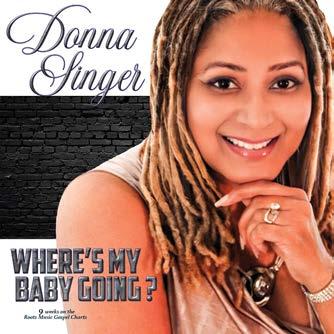
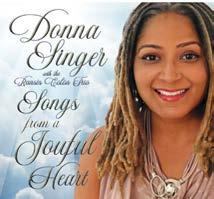
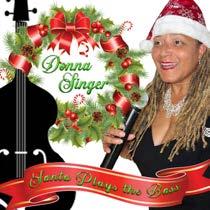
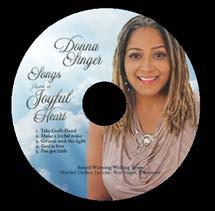

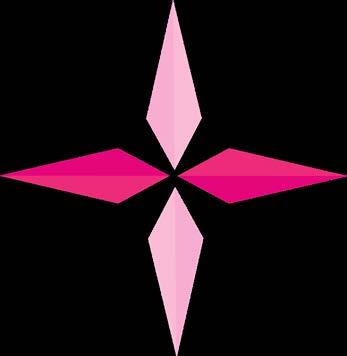
VICE PRESIDENT
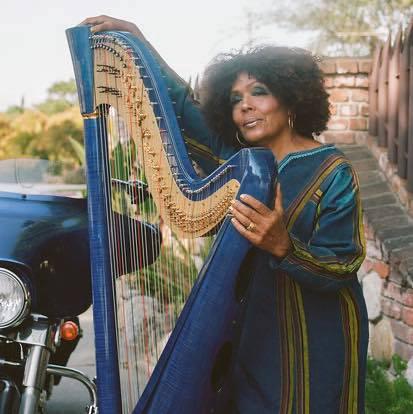
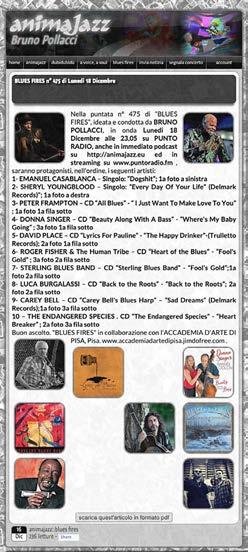
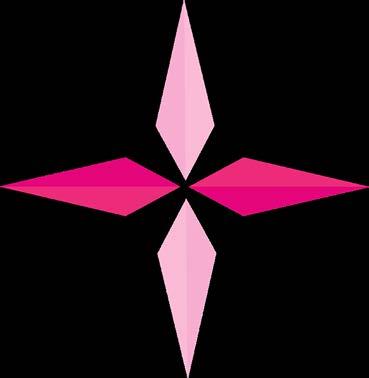
We met on Zoom on the WIJSF monthly Composers meeting. We are also collaborating on a cabaret style Christmas tune. I have always been fascinated with Radha’s story from her early start in music to her touring around the world. She had heard a song I that was almost finished with and really liked it. I told her I would be honored to write some songs together, so we’ve had some initial meetings. We are hoping to actually meet in person or will collaborate remotely. Thank you technology!

Musicwoman Magazine and Maverick Global Distribution Join Forces To Empower Female Musicians at The Musicwoman Festival by
Shanta Lana Hereford
We are excited to support the Musicwoman Festival and its mission to amplify the voices of female musicians and industry leaders. This event aligns perfectly with our values of diversity and empowerment, and we are honored to be a part of it.”
~ Her Excellency Shanta Lana Hereford, Co-Founder and Managing Partner of Maverick Global Distribution
In light of its innovative approach and commitment to artist empowerment, Maverick Global Distribution has formed a strategic partnership with Musicwoman Magazine. As the Official Music Distribution Partner for the upcoming Musicwoman Festival, Maverick Global Distribution will play a pivotal role in supporting female musicians and industry leaders. The partnership underscores both organizations' shared values of diversity, inclusion, and empowerment, as they work together to create opportunities for underrepresented voices and musicians in the music industry.

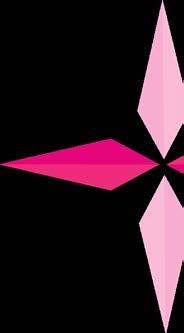
Moreover, Maverick Global Distribution's sponsorship of the Musicwoman Festival highlights its dedication to supporting emerging talents and fostering creativity and innovation in the music industry. From October 17-19, 2024, the first annual Musicwoman Festival in Atlanta, Georgia, will feature live performances, workshops, and networking events aimed at empowering women in music and celebrating their contributions to the industry. As a festival sponsor, Maverick Global Distribution reaffirms its commitment to championing diversity, creativity, and excellence in music.


In today's digital age, independent musicians face numerous challenges with distributing their music. Traditional distribution models favor established artists and labels, leaving emerging talents struggling to gain visibility and access to global markets. Limited resources, complex contracts, and lack of transparency further exacerbate these issues, hindering the growth and success of independent artists, worldwide.
Amidst these challenges, a new giant in the music industry is emerging on the distribution landscape. Maverick Global Distribution is a trailblazer, redefining the way music is distributed and empowering independent artists to take control of their careers. Unlike traditional distributors, Maverick Global Distribution offers a fresh approach that prioritizes transparency, accessibility, and artist empowerment.
At the core of Maverick Global Distribution's ethos is a commitment to provide artists with tools and resources to succeed. Through its innovative platform, artists can easily distribute their music to major streaming platforms and online stores to reach audiences on a global scale. With user-friendly interfaces and no contracts, Maverick Global Distribution removes the barriers that hinder independent musicians from accessing distribution services.
Furthermore, Maverick Global Distribution's emphasis on education and support sets it apart from other distributors. The company offers comprehensive support and access to performance opportunities, one-on-one consultations, and other support to help artists navigate the intricacies of the music industry and maximize their potential. By empowering artists with knowledge and expertise, Maverick Global Distribution equips them to make informed decisions and chart their own paths to success.
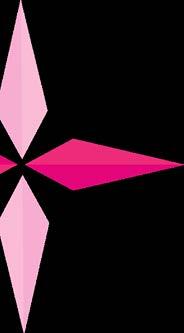
Kim Jay and Libra Sene (R.I.P.)
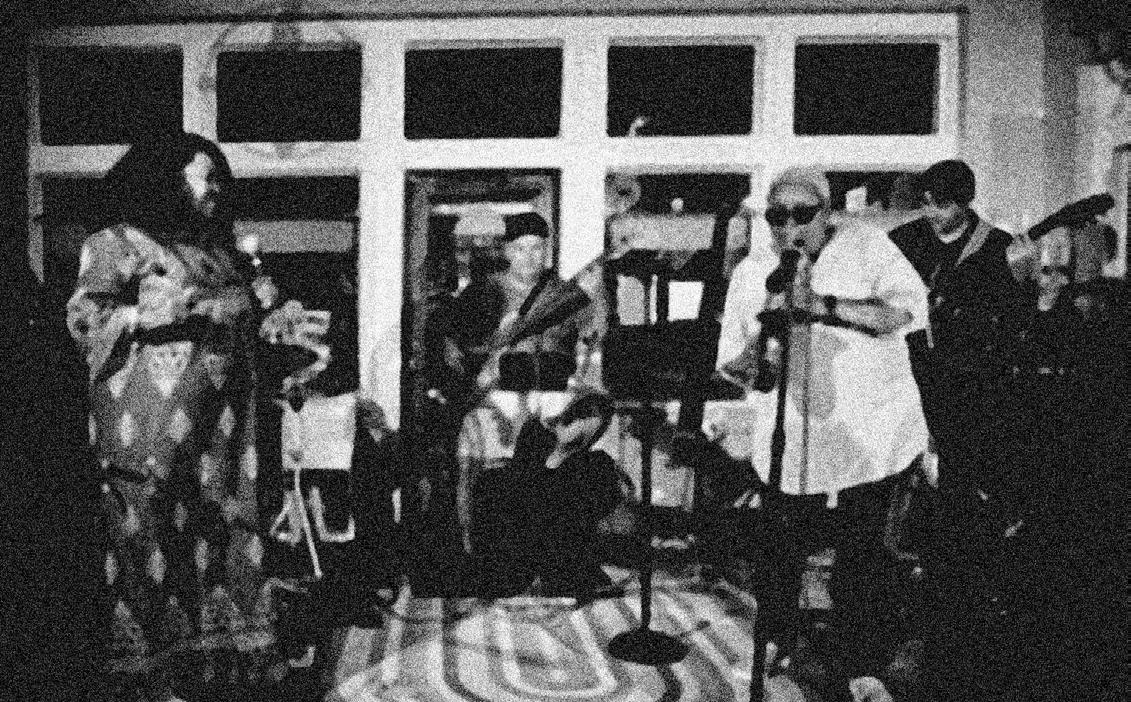

I first met WIJSF Past President Audrey Libra Sene at the Jazz on Jay Street Professional Jazz Jam in West Palm Beach, Florida. The first thing I noticed about her was her big hair. The next thing was her even bigger smile. As we got to know each other, I was working on an instrumental song composition, All Good. At first, I released the song.
Later, I asked Libra if she would write lyrics to it. She resounded with, “Absolutely!”
It was during COVID, so we were collaborating through FaceTime and phone conversations. I got up enough nerve to ask her to sing it and she said, “Let me hear your take on it first.”
Unfortunately she passed away before we could record her voice on it. I miss Libra and think of her daily. Whenever I play this song, I know in my heart she loved it and it will always be her song too. And it’s All Good.

At 13, I began writing songs strumming a ukulele that fit my small hands. I accepted the composer’s pen and spent the next twenty-seven years developing my craft as a Nashville songwriter.
In 1985, the voice of a young black woman auditioning for a musical with no black actors stopped me cold and an inner voice re-directed my pen to “Write a musical for undiscovered talent like hers.”
Though the musical premiered in 1989, to racially mixed audiences and rave reviews, reverse discrimination shut down efforts to market it further. The pen was silenced for eleven years.
By 2000, times had changed, and doors were open to re-stage the musical. Our premiere date was the ill-fated September 11, 2001. The music inside me died. My pen was broken.
After three years of seeking God in silence, I heard a new voice that pierced my grief and awakened the composer’s pen once more. In a meeting of creative women, listening to them share their work, the late Frances Patton Statham stood to recite a poem she had written, following the 2004 tsunami that devastated Sri Lanka. The room fell silent.
What I heard in her poem overwhelmed me, overlapping layers of raw emotions. Inside of me, I heard, “The horrifying crescendos of earth’s eruption, slowly overtaking the laughter of people innocently playing in the surf, leaving behind the eerie stillness of death.”
I was moved to compose Tsunami to interpret musically one of nature’s most horrific attacks on humanity. When I studied the poem, I conceived the music as four separate movements, each reflecting a different aspect of the horror surrounding that fateful day. Each movement was composed, recorded, and mixed on my keyboard’s 16-track sequencer. Then, imported into Pro Tools, the digital audio workstation I used. Pro Tools’ volume mode offered me freedom to produce certain effects, such as the audio collision of movements #1 and #2, reflecting people frolicking in the ocean, oblivious to the eerie rumbling, deep within the bowels of the earth. The sad moans of an acoustic guitar formed the core of the final movement that underscores the reading of the poem.
The video of Tsunami is available at More About Candace Long. It shows the improvisational layering technique I developed to produce it. The composition ended up as part of the auDEO album published in 2006. In 2020, I won first place in music at the National League of American Pen Women Conference as that year’s top Artist, Writer and Composer.
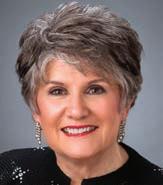
Link to more of my songs
Candace Long - Screenwriter (vimeo.com)
Tsunami by Candace Long
Candace Long President,
National League of American Pen Women (2014-2016)
Writer | Producer | Radio Host of Lessons in the Ladder Days
Founder, auDEO Media Group, LLC | (770) 298-0843 www.candacelong.com | candacelong@me.com

POEM by Frances Patton Statham
Do not grieve for me
On wounded beach or ravaged sea, Nor in the frond-stripped huts amid debris Of broken dreams and sorrowed hearts
Instead, look upward to the light Of dazzling stars in moon-stirred night, And know my soaring, winding flight On zephyred wings as day departs.
Now I am one with earth and sky I am the love that will never die. So take heed in remembrance of former things, Yet sense the need that comfort brings
Of a world that continually sheds its sorrow, In the keening promise of a new tomorrow.
© Frances Patton Statham
Coltrane Swamini Turiya & Radha Botofasina - October 20, 1990

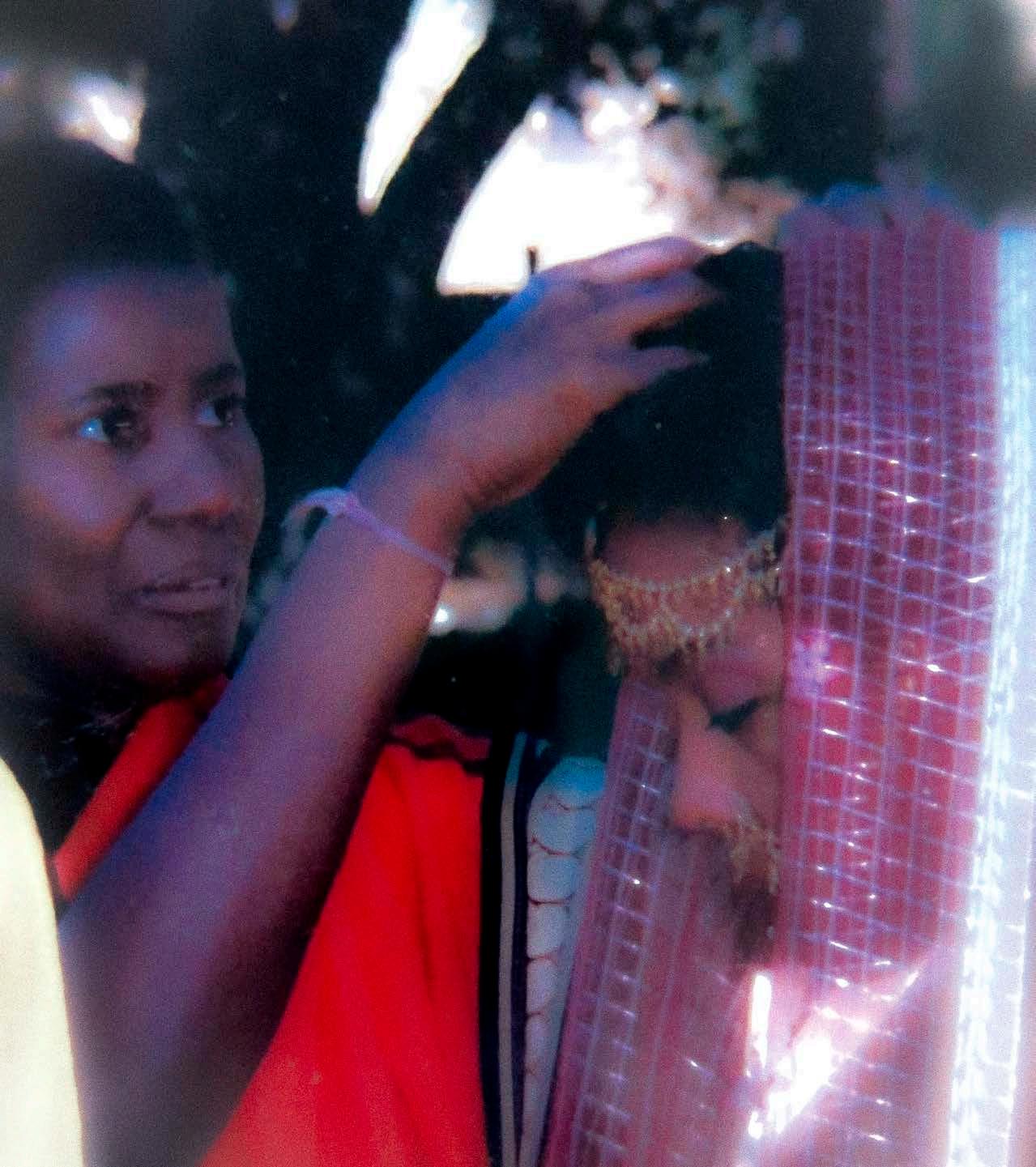
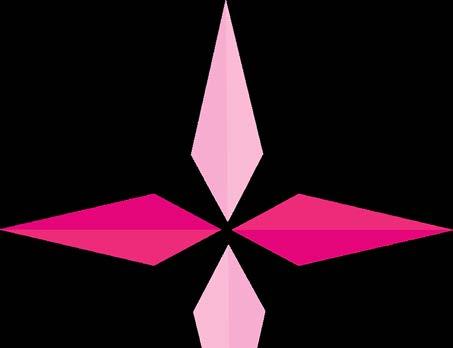


Radha Botofasina
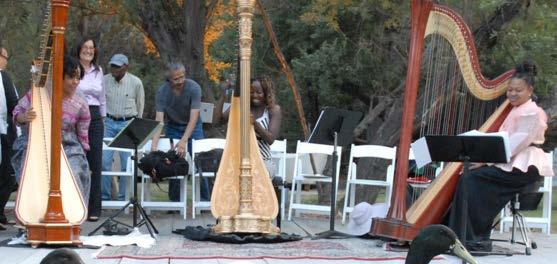
Radha Botofasina, Brandee Young & Destiny Muhammad
Cosmic Harp: A Tribute to Alice Coltrane
Levitt Pavilion MacArthur Park
Saturday, August 27, 2011
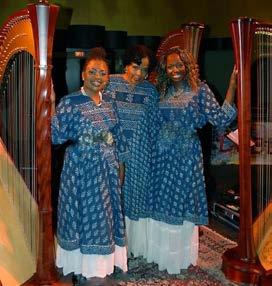
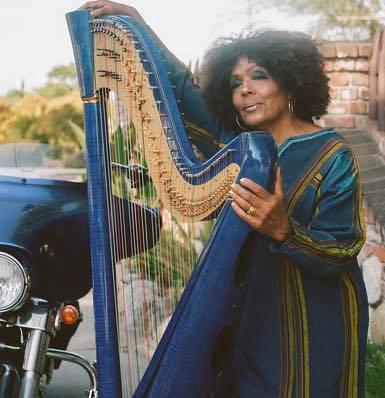

The world of harp is a small community. When it comes to harpists of color from the Afro-American diaspora, the numbers are infinitesimal. In 2016, only three percent of the ten million harpists in the United States were of African descent. The earnings of professional harpists in the United States is between $60K and $100k a year. How much comes from multiple revenue streams is not readily available.
Little statistical data is found on the number of professional African Americans harpists who do not need to have multiple side jobs. The number ranges between 20 to 50, in United States. Even more rare and historical are public concerts with multiple AfricanAmerican harpists on one stage, celebrating the music of one of the most iconic and ambient harpists in the last 50 years. Known as Swamini Turiyasangitananda, Alice Coltrane, was unmatched in her expression on harp. Her style of playing had never been heard before, since she could make the harp swing. Her deep expression was never lost in a clutter of notes. Alice played from the heart for the love of God, rather than to impress her peers.
A new generation of listeners was born, listening to masterpieces recorded by Alice on several albums for Impulse. Subsequent generations continued to listen, and some imitated her sound on harp. Three of these harpists paid homage to Alice Coltrane’s spirit in an historic concert in Los Angeles. In 2011, KPFK radio host Carlos Niño, co-founder of Dublab, invited Radha Botofasina to perform Alice Coltrane’s harp compositions.

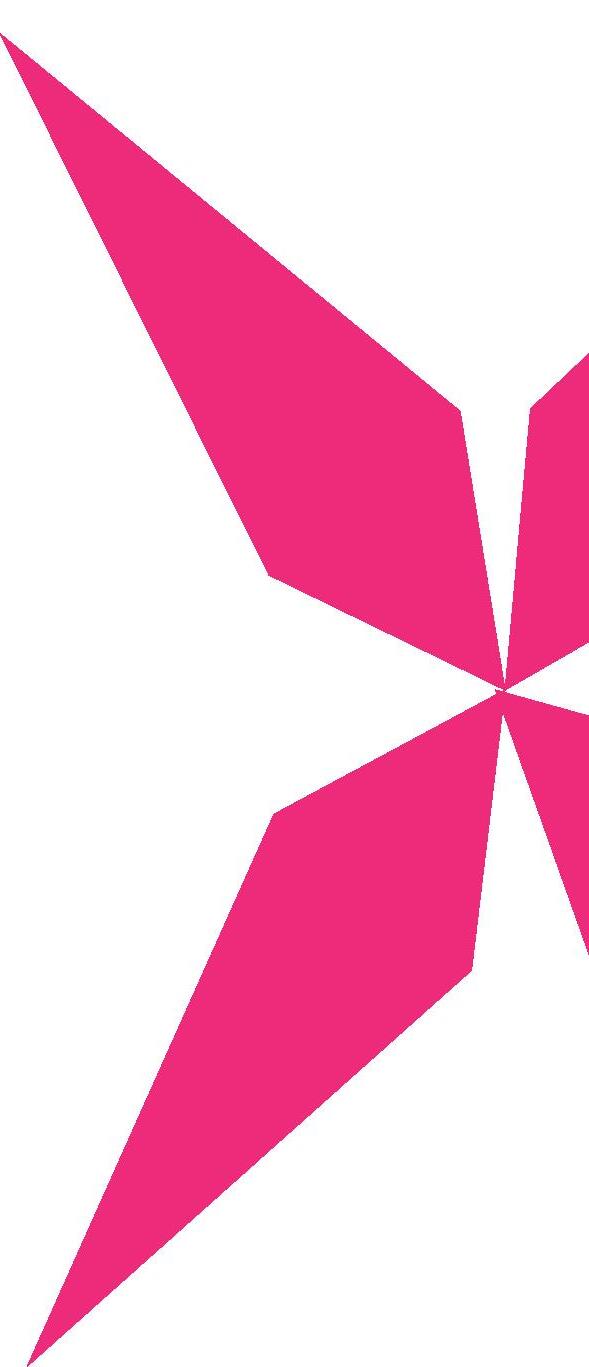
It seemed like a perfect time to gather three diverse harpists from the African American diaspora with completely different journeys to becoming harpists. Brandee Younger was classically trained. Destiny Muhammad was self-taught and a serious bootstraps harpist, and Radha Botofasina spent decades on piano, keyboards, and voice. In her thirties, Radha began a journey of spirit and trust into the sonic space of harp inspired by Alice Coltrane and Dorothy Ashby. These two Detroit pioneers brought the harp back to everyday people. What fearless gifts Alice and Dorothy left in their recordings to inspire generations to come!
Joyously, Brandee, Destiny, and Radha agreed to the 3 Mo’ Harpists experiment. The meager production budget was shared equally among the three harpists and the energy of this endeavor was dynamic. Through emails and phone calls, each harpist agreed to transcribe at least one of Alice Coltrane’s compositions. Brandee said, “I had never been to the Alice Coltrane’s Sai Anantam Ashram, and I wanted to go. So, when it came about, I was over the moon. Also, I was nervous about what we were going to put together, musically.”
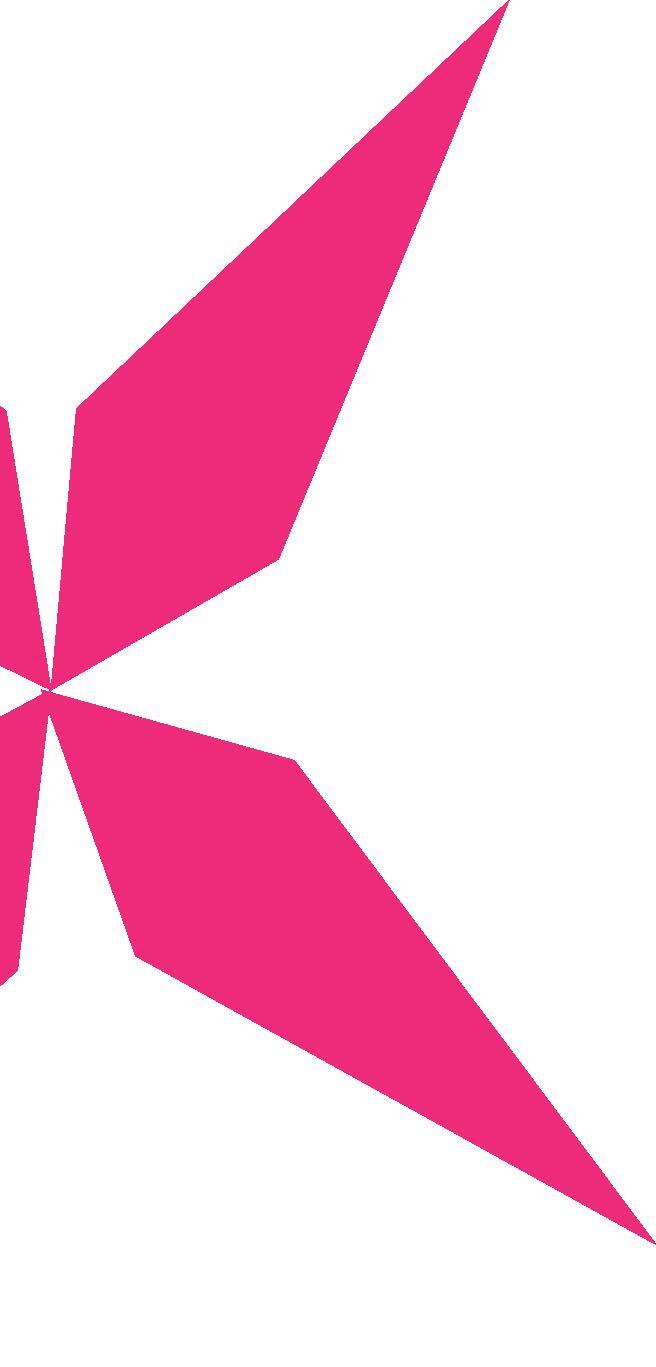
Destiny said, “When the opportunity came for the collaboration with three harps with three black women, it was an exciting time. It was such fun, exchanging musical ideas with two powerful harpists.”
For five days, we prepared for the concert billed as Cosmic Harp: a Tribute to Alice Coltrane, on Saturday, August 27, 2011, at the Levitt Pavilion in MacArthur Park, in Los Angeles, California. The weather was so hot that the film crews’ cameras stopped working. But 1,500 people attended and several African American men and women who aspired to play harp lined up at the front of the stage.
A 2024 NAACP Image Award winner, Brandee Younger still has the transcriptions of the music. The local Salvi harp showroom loaned us three concert grand harps. We were joined onstage by 15 of the Sai Anantam Ashram Singers, chanting sacred songs of Alice Coltrane. The music transcended preconceived notions of traditional harp music.
The pedagogy ascribed to Alice Coltrane was incredibly Afrocentric, and an avantgarde expression of her undisputed devotion to God. We had a delightful week of collaboration with our varying harp styles, playing the magnificent expressions of Alice’s music that opened our hearts and the hearts of our listeners, cosmically.
Throughout long hours of rehearsals, Brandee, Destiny, and I had no negative moments. At one point, we had an open-air dress rehearsal on a 105-acre property of a neighbor, who allowed us to perform there but forgot to tell us about the ducks that would be milling around our harps. We loved every minute of it. Literally, the open sky was the limit, as we played Alice Coltrane’s sacred music, Journey in Satchidananda, Prema, Jai Ramamchandra, and Krishna Krishna.
Each harpist shared her prowess during solo cadenzas. In reality, it was whatever their fingers felt free to do within the realms of music. So, there were no mistakes, only open-hearted listening. Every single note, glissando, trills and arpeggios, scales in both directions, or tapping on the soundboard in the ancient tradition of rhythm, combined in a sonic quilt of harp strings and heart strings, that is where we went as a trio.
Similar to children playing Ring Around the Rosie, while holding each other’s hands with complete trust, happiness, and song, our music was translated by nimble, calloused harp player fingers. We were lifted to heights only the Divine could take us musicians. Indeed, the ancestors were smiling upon us, allowing us to be together in an unforgettable moment that nurtured our spirits in an exalted experience of pure cosmic joy!
“When the opportunity came for the collaboration with three harps with three black women, it was an exciting time. It was such fun, exchanging musical ideas with two powerful harpists.”
Destiny
“Every single note, glissando, trills and arpeggios, scales in both directions, or tapping on the soundboard in the ancient tradition of rhythm, combined in a sonic quilt of harp strings and heart strings, that is where we went as a trio. “
Radha


by Radha Botofasina
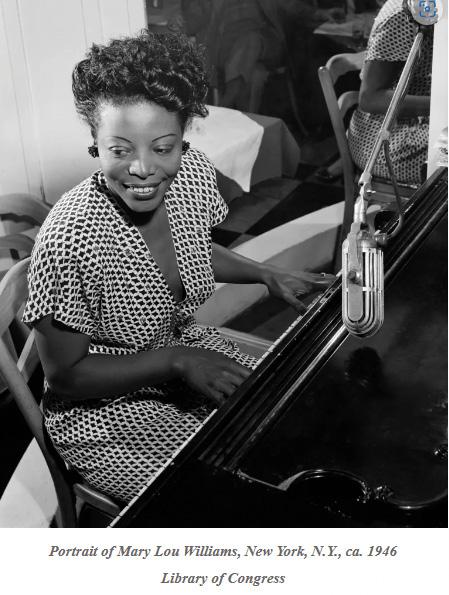
Most mentors are several decades older than their mentee. In my early twenties, Mary Lou Williams became my first piano mentor. One warm evening, I was walking though Greenwich Village in Manhattan. There was an open air dinner café, Barney Joseph’s Jazz Cookery, featuring a jazz duo with a bassist and a piano player. The chords I heard made me stop and stare at the African-American lady playing the piano. After her set, I approached her, asking, “Can I take lessons with you?”
Mary Lou Williams wrote her telephone number and address for me, and I called to schedule a lesson, the next day. She lived on Hamilton Place on Sugar Hill in Harlem in a one-bedroom apartment with simple decor. A small upright piano dominated one wall of the modest living room. She had me play something and gave me her honest opinion, “You play African in your left hand.”
Before the lesson was over, she wrote a series of chords and voicings on manuscript paper for me to learn, using the tune Jeepers Creepers as a road map. She charged me ten dollars and that was the only time I paid for a lesson with her. Mary Lou saw something in me that I did not see in myself. Perhaps, it was my determination to get the music right, more than innate talent.
Mary Lou recounted stories about musicians who came to her apartment to hang out and play music. Her hands moved so fast across the keyboard that they looked like they were standing still. She was enormously creative in her compositions and had recorded over 100 albums as an accompanist and leader.
One outstanding story was about her a liturgical mass composed in tribute to Saint Martin De Porres, the black Christ of the Andes. Martin’s mother was African Panamanian, and his father was Spanish. Before he was 13, Martin was a doctor’s apprentice. He became a barber in the 16th century tradition of extracting teeth and draining abscesses. He accepted the call to monastic life and entered the Dominican Order of priests, even though the Peruvian law forbade people of color from becoming priests. Martin was allowed to enter the priesthood and work in the infirmary, where he said, “I cure them, but God heals them.”
Without complaint, Martin did janitorial work assigned to him at the monastery. He lived in humble quarters near the kitchen. He was a vegetarian, eating only potatoes, and he was seen levitating in intense prayer. He had the ability to bi-locate, appearing in other countries far from Peru.


Mary loved St. Martin de Porres. When she began composing the mass dedicated to him, she said she lost consciousness. Amazingly, the composition was written on manuscript paper when her consciousness returned. A grant from philanthropist Doris Duke enabled Mary to hire commercial session singers to sing the vocal parts. It was a beautiful homage to St. Martin. Mary was a Catholic convert, but she was mundane and spiritual.
Mary never spoke about her siblings, only her mother. When I gave temporary shelter to a teenage girl, Mary wrote a check for food and other things for the teen. Sometimes, she sent me to other musicians who taught classical piano. I took a couple of lessons but didn’t like it at all. She sent me to sing horn lines with Andy Bey and Blossom Dearie. That was challenging, but it sharpened my ear to sing intervals.
One day, at her house, I met pianist Hilton Ruiz and a woman who was studying with Jaki Byard at the New England Conservatory of Music. We took turns playing Mary’s piano. We didn’t compete. It was a simple, glorious musical conversation. I could barely read music and attempted playing piano for nearly a year. No one made fun of me. They were supportive and I was comfortable playing what I knew. I had nothing to prove and everything to learn.
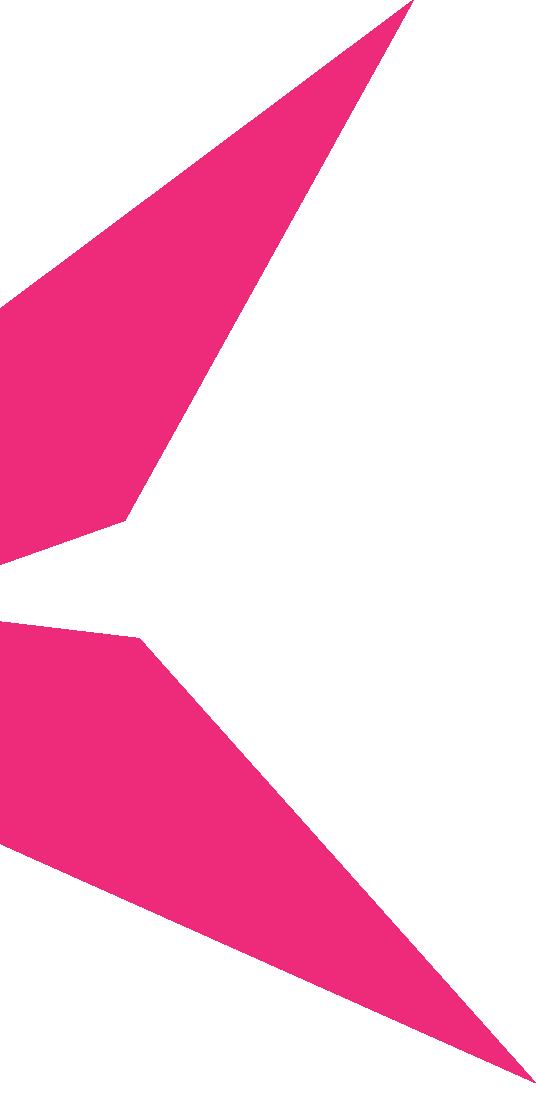
I continued doing unique things with Mary, visiting her, listening to her stories, and being invited to participate in her adventures. Mary and her manager, Father Peter O’Brien, invited me to Greenwich, Connecticut, for a private soirée, featuring Mary on piano. Mary asked me to dress up as a gypsy and be prepared to give the ladies in attendance psychic readings. I am not a psychic, but I dressed up in an Afghani wedding outfit and rode up to the event with them.
I couldn’t understand why someone of Mary’s stature would take a private event like that. But I knew nothing of the sacrifices one had to make for one’s art. Mary played a few tunes on the piano, then it was my turn to give the psychic readings. I blurted out stream-of-consciousness babel, whatever came to my mind in the moment. One lady wanted to go into a private room because something I had said struck a nerve with her. I only did this because Mary asked me to. It was a hoot and she wanted me to do this purely for entertainment - theirs not mine!
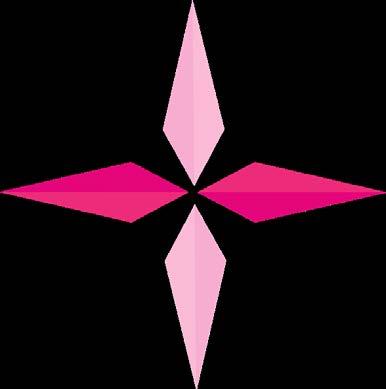
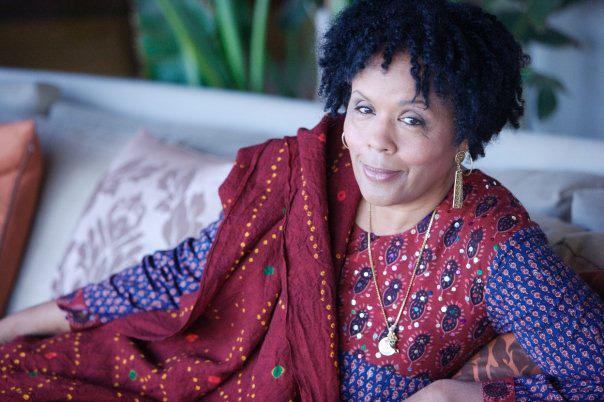


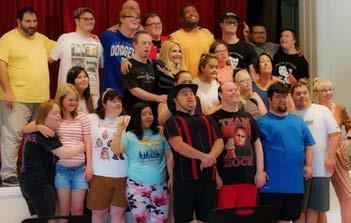
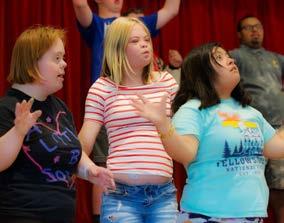
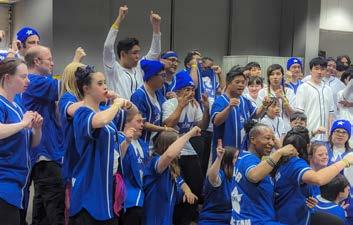
For over 45 years, I have mentored individuals with diverse abilities. To enhance my expertise, I completed a professional development workshops and certification programs, including the Social Emotional Arts program at UCLA and the VAPA Teaching Artists program sponsored by the LA Music Center.
For a year, I volunteered at Agoura High School, in Los Angeles County, in a special education class, where I taught music, introducing severely handicapped students to musical instruments like the harp, percussion, and keyboards. Through these experiences, I developed a deep understanding of the unique needs and abilities of individuals with diverse needs.
In 2009, I participated in an 8-day vocal workshop in Warsaw, Poland, with an American pianist on the autism spectrum. In 2017, I organized a Peace and Unity Concert of my original compositions in the Dominican Republic with 28 members of the National Orchestra, special needs individuals, and orphans. An interpretive dancer with Down’s Syndrome was featured. These experiences broadened my perspective and deepened my commitment to promoting inclusivity and creativity for individuals with special abilities.
The BTAP project speaks to my heart for the special needs population to be lifted and seen. My goal is to meet them where they are, listen, and create an experience that is unique to their personalities, while incorporating American Sign Language (ASL), interpretive movement, and singing. I understand the importance of artistic expression for individuals with special abilities because my daughter, Ranjani Devi Reyes has special abilities. Artistic expression is an innate part of her development and expression. I see how much joy and fulfillment she experiences when she creates and expresses herself through music and dance.
Our collaboration of acting workshops with voice and music provides opportunities for individuals like my daughter with special abilities. Participants explore their creativity and showcase their talents in a safe and inclusive environment. By incorporating ASL, interpretive movement, singing, and other art forms, we create a unique and personalized experience for each participant.
I facilitate this project because of the significant need for inclusion and accessibility to creative spaces for individuals with special abilities. Many face barriers to traditional forms of art expression. Spaces where individuals of all abilities come together enable them to connect and showcase their talents, thereby promoting inclusivity and acceptance in society.


BTAP is a collaboration that proves that everyone can express themselves, creatively, regardless of their abilities. BTAP empowers them to explore their creativity and showcase their talents. The compelling therapeutic and educational components impact participants, who develop creative expression, while enhancing their communication, self-expression, and socialization skills. They connect with others with similar abilities, experiences, and interests. This sense of community and belonging impacts their mental health and wellbeing.
In the final performance, they showcase their talents and abilities to a wider audience, raising awareness about the power of inclusive and accessible creative spaces. The performance provides a platform for them to challenge negative stereotypes and break down barriers to fully participate in society. The program impacts the community-at-large by raising awareness and challenging negative stereotypes. The participants love all genres of music, especially Bob Marley’s Exodus, Movement of Jah’s People.

On April 20, 2024, Musical Cascades: The Power of Music hosted by the Buckhead/Cascade City (GA) Chapter of The Links, Incorporated, was held at the First Congregational Church in Atlanta. Since its inception, this signature award-winning performing arts and scholarship program has featured over 85 collegiate music students, providing more than $100,000 in scholarship awards. The trend continued with another musical extravaganza with gifted collegiate musicians and community artists across various performance arts genres.
The stage was set with a musical performance by acclaimed saxophonist and America’s Got Talent Runner-Up Avery Dixon, with Lovely Day by Bill Withers. The audience was mesmerized by captivating performances from the Namari Dance Studio ballerinas, vocalist Destiny Brown from Tri-Cities High School, and poet Kayla Shannon, a graduating senior at Spelman College. The Trey Clegg Singers celebrated diversity with renditions of indigenous songs. Jason Smith closed the show with a soulful finale, Let it Be by the Beatles.
The highlight was four Musical Cascades Rising Stars, celebrating the timeless beauty of classical music that captivated the audience. A passionate performance by B’ Nathaniel Orlu from Morehouse College left an indelible mark our hearts. Nubia Causey from Kennesaw State University gave a dynamically dazzling vocal performance. Georgia State University’s Jeremiah Brown stirred our souls with his vocal selections, and, from Morehouse College, trumpeter Charles Cherry was harmonically brilliant.
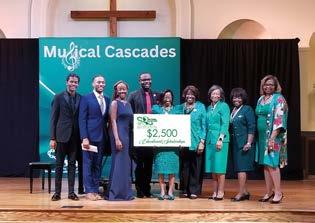


The immersive experience ignited our imagination and enriched our hearts through the transcendent power of classical music etched into the minds of our audience. Four students received a $2500 scholarship, thanks to our Friends of Musical Cascades and sponsor, Southern Company. The program culminated with our 2024 Legacy Award recipient, Dr. Rachanice Candy Tate for her steadfast contributions to the Arts and Musical Cascades. The 2024 Rising Star Award was bestowed upon Kayla Shannon for scholarly achievements in the Arts.
Musical Cascades is a legacy signature program of Classics Through the Ages, a National Initiative of The Links, Incorporated. This initiative highlights the importance of classical art with a particular focus on the contributions and performances of persons of African American Ancestry. Musical Cascades celebrated twenty-two years of providing a platform for gifted collegiate students to perform and receive scholarships to support their career aspirations in the arts.
As Arts Facet Co-Chair, I believe that the longevity of Musical Cascades is indicative of superior programming, our commitment to supporting students in the development of their talents and gifts, our generous and supporters, and our long-standing dedication to the Atlanta community.
In her closing remarks, President Shaun Hunter-Green acknowledged the leadership of the Arts Facet CoChairs Margaret Collier, Helen Mitchell, and Allie Robinson Terry and their committee for unwavering dedication to the continuity and legacy of this program. She said, “Our chapter is grateful for the opportunity to provide this gift to the Atlanta Community. It is, indeed, something very special!”
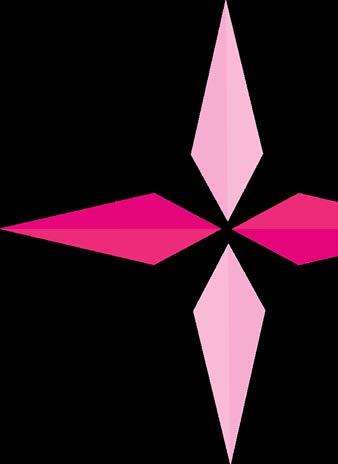
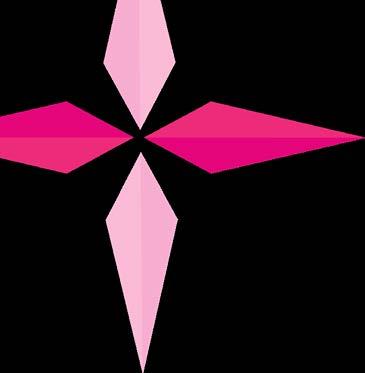
by Mimi Johnson
| www.musicwoman.art | media@wijsf.org | www.wijsf.org |


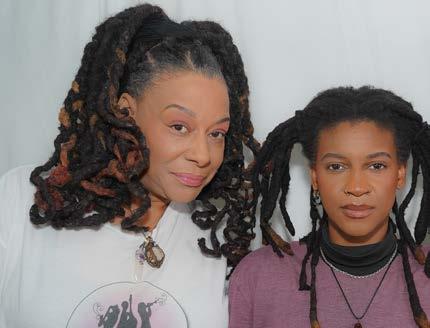
www.wijsf.org | www.musicwoman.art | media@wijsf.org | www.wijsf.org | www.musicwoman.art
Dr. Joan Cartwright, Mimi Johnson, and Muki Williams are three generations that work together as a team for the nonprofit, Women in Jazz South Florida. Inc., Musicwoman/Musicman Magazines, and the Musicwoman Festival. This amazing team of women have created a buzz worldwide to promote women musicians and composers. The goal is to include women composers and musicians in performance platforms and create budgets to pay women to live a wonderful life, while working in the arts.
Women In Jazz South Florida, Inc. (WIJSF) is a 501(c)(3) non-profit, educational organization that promotes women musicians, globally, through events, concerts, performances, clinics, lectures, workshops, articles, interviews, newsletters, courses, contacts, research, history, archives, websites, film, audio and video recording, and recognition.
The Executive Director, Dr. Joan Cartwright has managed WIJSF for 17 years. Her daughter, Mimi Johnson, and granddaughter; Muki Williams have joined Dr. Cartwright in the journey to promote the musical talents of women across the globe. They are very excited about the venture because it gives an opportunity for many women to be promoted and paid for their work. The trio has scheduled Musicwoman Festival 2024 in Atlanta, GA. USA, October 17 – 19, 2024. They have booked some of the best women musicians and vocalists in the world.
Our magazines, Musicwoman (6th ed.) and Musicman (5th ed.) will be published and made available online and in tangible copies on June 15, 2024. The ladies offer a membership platform for WIJSF for anyone to become a member and get premium promotions for their music and herstory. DrDivaJC hosts Musicwoman Radio on BlogTalkRadio featuring interviews and music of some of most talented female musicians on the planet! @ https://blogtalkradio.com/musicwoman

Mimi Johnson, Media Director www.wijsf.org www.musicwoman.art media@wijsf.org j34

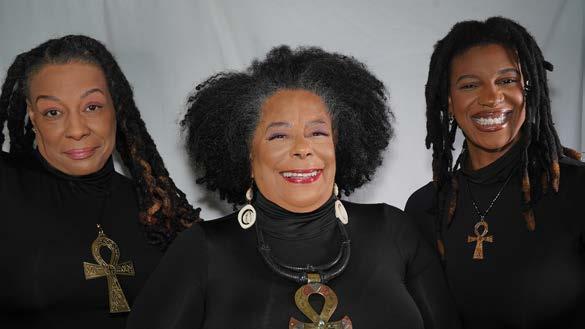
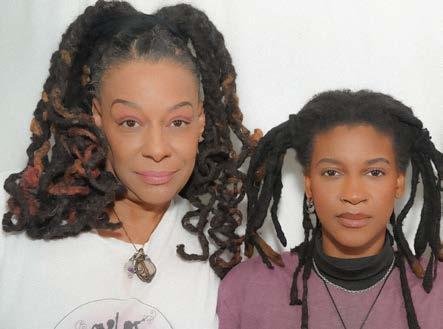
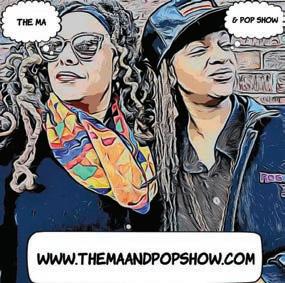
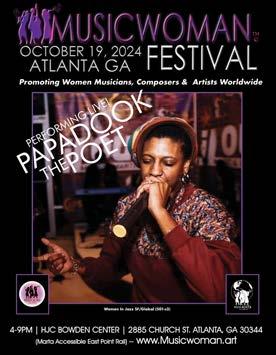
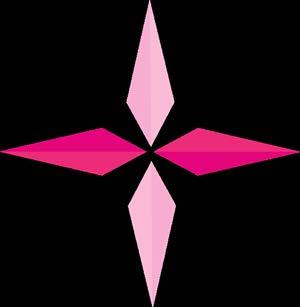
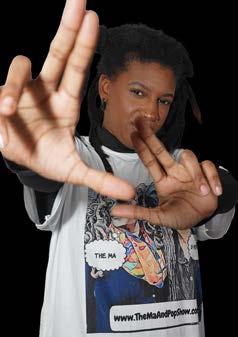
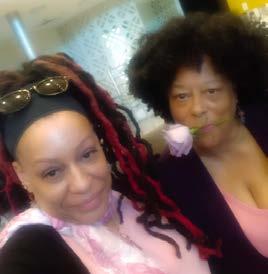
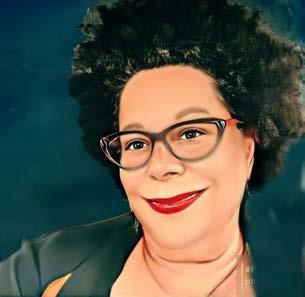



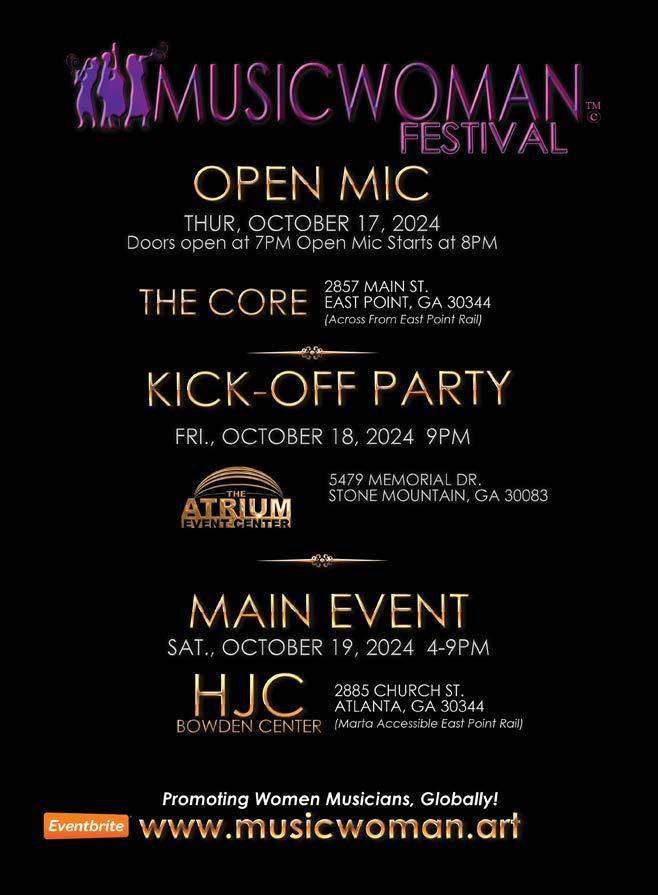

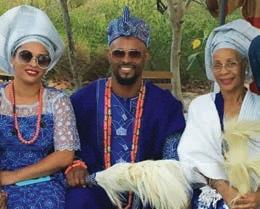
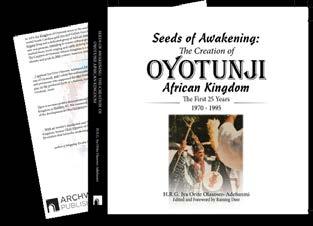
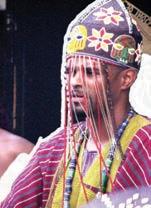
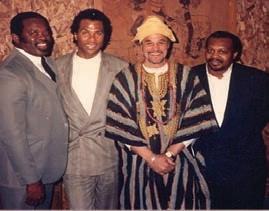
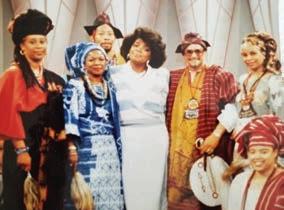
In the 1960s while Dr. Martin Luther King, Jr. was leading the civil rights struggle, Walter Eugene King was forging a path to African cultural restoration. Establishing a town in the shadow of antebellum plantations, designed on the scale of a traditional West African community, Oba Oseijeman Adefunmi I brought Oyotunji African Village to life. He was ultimately coronated as King of all Yoruba in the Western hemisphere, and Oyotunji morphed into a 21st century iteration of a kingdom.
Queen Mother Iya Orite Olasowo-Adefunmi, the senior queen/wife of Oba Adefunmi has completed the book started decades ago with her late husband who transitioned in 2005. Seeds of Awakening: The Creation of Oyotunji African Kingdom, 1970 – 1995, is a chronicle of the first twenty-five years of the enclave located near Hilton Head, South Carolina. The Yoruba name Oyotunji means “Oyo rises again.” The Oba and his followers who became chiefs and priests, developed Oyotunji as a center “for African Americans in search of their spiritual and cultural identity” so they can rise like Oyo.
Drumming, African dance and praise songs to the orisha are a constant backdrop to ceremonies and festivals at Oyotunji. Its growth was not so much by acreage, but by its influence on African Americans throughout the civil rights era. From the terms used to identify Blacks in the United States as African rather than Negro, or colored, to the style of dress, embracing dashikis and head wraps, to freedom of religious and cultural expression, and celebrity visitations, Oyotunji was at the forefront of influencing important transitions in thought, cultural practice, and music. In the religion, author Queen Olasowo Adefunmi reached the equivalent of Cardinal in the Catholic Church, an indication of how women can rise to prominence in the Yoruba faith and culture. She sings and writes Orisha songs to lift her spirit, continually.
The documentary Bigger Than Africa, streaming on Netflix and YouTube, prominently features Oyotunji African Village, its musical backdrop, its current king, HRM Oba Adejuyigbe Adefunmi II, and village residents, revealing the pageantry, festive celebrations, and connections to the global Yoruba community spanning Nigeria, the Caribbean, Brazil, and the U.S.A. In October 2023, a New York Times article entitled Overlooked No More, recognized Oyotunji’s founding king for the broad influence his establishment had on the African American community. A place of pilgrimage and learning, the villagers welcome thousands of tourists, educators and students, and community groups, annually. Olasowo-Adefunmi is eager to share this historic journey.
Visit: www.olasowohouse.com and www.oyotunji.org
Contact:
Iya Orite Olasowo-Adefunmi rainingdeer2@gmail.com
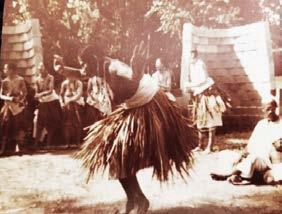
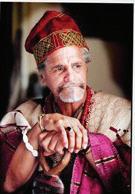
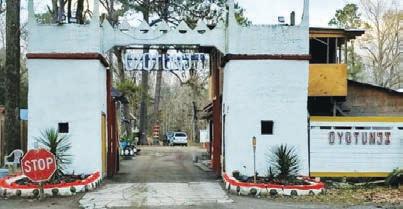

For over two decades, Americolor Opera Alliance (AOA) has been a beacon of artistic excellence and community spirit in Atlanta. Dr. Sharon J. Willis founded AOA in 2001, to celebrate American and Afrocentric culture, through opera, which provides a platform for professional and amateur artists, exploring their talents and passion. AOA’s mission is to present operas and stage plays about American and Afrocentric experiences. Through performances, internships, and educational initiatives, the company seeks to enrich the cultural landscape of Atlanta and beyond.
Christopher


My journey encapsulates the essence of AOA’s mission and impact. I joined the company in 2003. My apprehension about auditioning for an opera company transformed into a profound sense of belonging. I was raised in the theater in Bermuda and was prepared for the stage, but opera was uncharted territory. Although I had 20 years of classical vocal training, I never imagined performing in an opera.
When I was accepted into the company, I was dumbfounded. There was a week and a half, until opening night. I went to Dr. Willis’ office to go over the music. I thought I would be in the chorus, since they were so close to opening. Dr. Willis had other plans. She asked me to play Mrs. Beasley, a first class passenger on the Titanic, and a second character, a passenger who went down with the ship.

In less than a week, I had to learn those parts. My first rehearsal with the cast terrified me. After all, I was well aware of the reputation of opera singers, divas, and stand-off types. But this group was not full of self-absorbed performers. It was family, a community of amazing artists who knew their craft.

There were no divas with attitudes. They were performers who supported, respected, and encouraged each other. When I took my place on stage, one of the members said to everyone, “Here’s Leontyne right here. You remind me of Leontyne Price when you sing.” I was humbled.
With the support of cast members, less than a week of rehearsals, and music partially memorized, I was ready when I took to the stage on opening night. I knew how to act, it was in my blood, and I was back on stage. But, what meant the most to me was that I had found my tribe. Americolor Opera Alliance was home.
Of 16 operas and nine plays written by Dr. Willis, I played Ma Belle in The Great Divide; a Spirit Muse in The Candlers of Callan; the Blues Singer and Midnight Street Hostess The Herndon Story; Angel Chorus in Three Kings and a Prince; Gladdy Mae in Madame C. J. Walker; Julia Mae Thomas in The Pink Lady; Makeda, The Queen of Sheba in The Seduction of King Solomon; Dr. Dorothy Brantley in Reverend Sister; Vashti, Queen of Persia in Three Dream Portrait; Dominique Devereaux in The Bridge; Nurse Corley in Connect 3: Alzheimer’s, Autism and Apathy; Chorus Member in Sing Marion Sing; Carmen J in Carmen J; and Bess in Porgy and Bess.
It is an honor to be part of this amazing community of actors, dancers, vocalists. We perform new works and I stretched my wings as Artistic Director of three plays by Dr. Willis, This Flag, Victorian Secrets, and Three Dream Portraits. The AOA story continues to unfold, weaving threads of culture, creativity and camaraderie into a tapestry to celebrate the richness of American and Afrocentric experiences.
Discover more about AOA and Dr. Sharon J Willis at www.americoloropera.org See Americolor Opera Alliance on YouTube
by Barbara Bruckmuëller
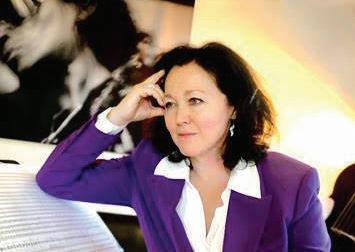
Embarking on a collaborative project with the esteemed Cuban pianist and composer Aruán Ortiz was an exhilarating prospect from the start. As a composer deeply committed to exploring the boundaries of musical expression, I was thrilled to join forces with Aruán for our venture, which we christened Three Views of a Musical Piece.
While my compositions laid the groundwork, Aruán’s free improvisation and inspired interpretations breathed life into the iterations of our musical piece. His ability to delve into the essence of my work and weave his musical narrative around, spontaneously, was a revelation that infused our project with an exhilarating, deeply moving, and dynamic energy.
We took one of my compositions, A Chain of Moments – Suite in Five Movements, and reinterpreted it in three arrangements, each showcasing a different ensemble and musical style. It was an ambitious undertaking, but we embraced it with enthusiasm and a shared sense of adventure.

The first arrangement featured a mesmerizing interplay between piano and string quartet that allowed us to delve deeply into delicate nuances and intricate melodies of the piece. Aruán’s piano playing was sublime, weaving seamlessly with the strings to create a rich tapestry of sound that resonated with emotional depth.
In the second arrangement, we changed the sonic landscape through a vibrant jazz sextet. Here, the composition took on a new life, infused with rhythmic dynamism and improvisational flair. Aruán’s background in jazz brought a fresh perspective to the piece, inspiring new musical ideas and pushing the boundaries of creativity.
Finally, the third arrangement showcased the sound width of my Jazz Orchestra, augmented by the rich textures of a string quartet and Aruán’s virtuosic prowess on piano. This arrangement was the culmination of our collaboration. Here, the composition reached its zenith as each element of the ensemble came together in perfect harmony.


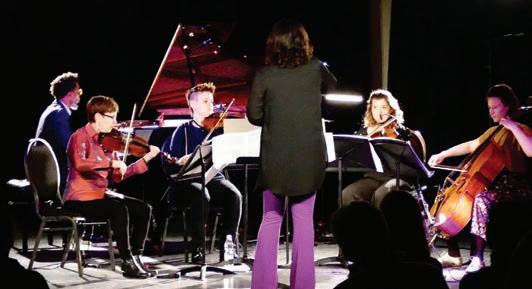

Throughout the process of creating, Aruán and I shared a deep sense of mutual respect and admiration for each other’s craft. Our collaboration was built on a foundation of trust and open communication, resulting in a free exchange of ideas that inspired us to reach new artistic heights.
But it didn’t end with the completion of this special project. In fact, it was just the beginning. Aruán and I formed a new ensemble, the Chain of Moments Quintet with a string quartet and Aruán on piano. This formation was born out of a desire to continue exploring the interplay between composed music and improvisation, between structure and spontaneity.
The response to Three Views of a Musical Piece was overwhelming. People were drawn to the beauty and complexity of the music but, more importantly, they were moved by the spirit of collaboration and unity that permeated every note. It was more than collaboration between two artists. It is a testament to the power of music to transcend boundaries and unite cultures.
[Photos: Vero Kolomaznik]

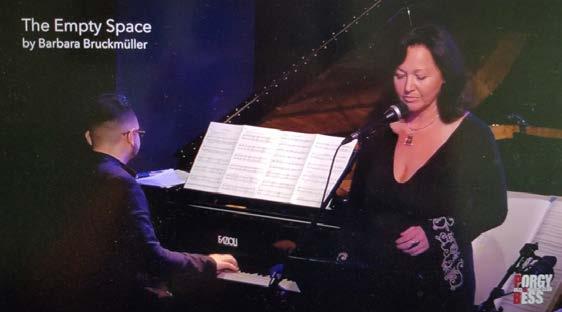

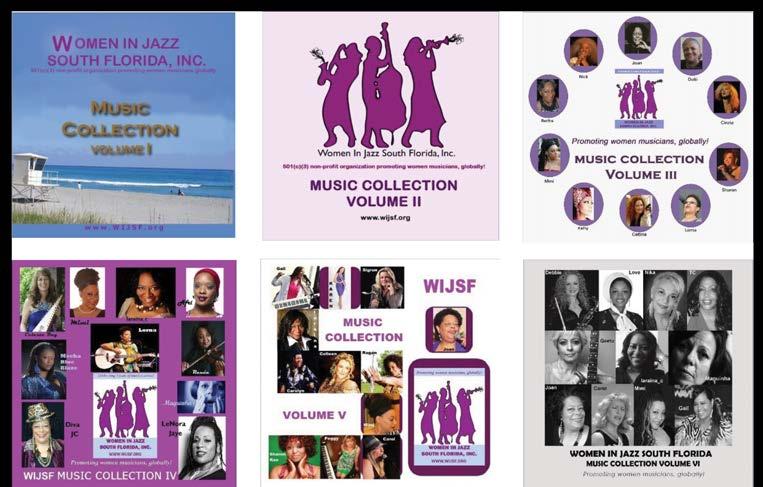


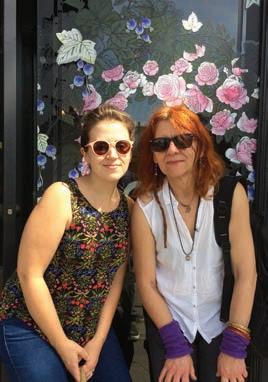
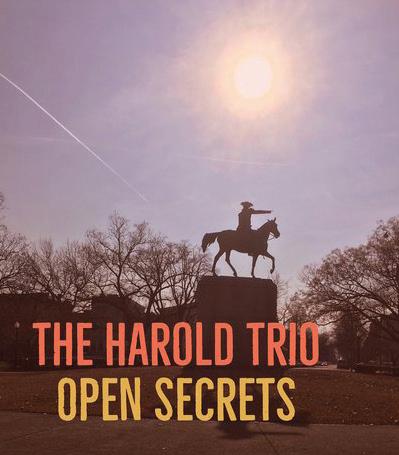
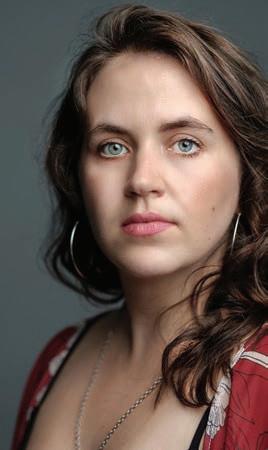
Biggi Vinkeloe plays saxophone, flute, composition, workshops, projects, co-owner of Open Horizon Records meets Amy K. Bormet, who plays piano, voice, composition, workshops, manages the Washington Women in Jazz Festival (WWJ) and other concerts, and is the co-owner of Strange Woman Records, and co-founder of the Turnaround Magazine.
A few months before I met Amy, I heard about her. Marie Tarrach Bävholm, producer for Jazz and Blues at the Cultural Department of The Region of West Sweden, and Västra Götaland invited me to be part of the first Women Jazz Festival in Sweden. Marie was so enthusiastic about a young pianist and vocalist, Amy K. Bormet, who had founded her own festival in Washington D.C. out of frustration that there were few opportunities for women to perform.
Of course, I was impressed about the entrepreneurship and tenacity of this young lady, who was 33 years younger than me. Amy came to Sweden with her fabulous group, Ephemera, to share the bill with Raw Sound Sweden, an ensemble created especially for this festival. I spent a lot of time with the American musicians, talking, jamming, walking by the seaside, and hanging out. The same groups performed in Washington, D.C. as part of WWJ. This was the beginning of our collaboration.
Amy lived in Los Angeles, California, with her husband in a small house not far from Korea Town. Dr. Matt Dievendorf is a guitarist, composer, producer, and instructor. For 20 years, I have lived in Oakland, part-time, so we arranged to meet in person.
A few times, Amy invited me to perform with her in Venice Beach at a church where she was the house musician for services. We had a lot of talks, and I enjoyed spending time at the colorful Venice Beach. We did workshops at the church and developed a deep musical relationship with great ease at improvising beautiful tunes together. With drummer Tina Raymond, we recorded our first album The Harold Trio (Edgetone Records, 2016) in the Bay Area.

We performed and jammed with Amy and Matt’s friends, took long walks towards downtown L.A., frequented thrift stores, and ate El Salvadorian food and dessert. We would stop at a park, or the library. When Vinny Golia invited me to do a workshop at the fabulous CalArts, I invited Amy to come with me. We conducted a workshop on improvisation, but had a passionate and interesting talk with students about women in the music business and on stage, also.
In 2019, our second album Open Secrets was released on Strange Woman Records owned by Amy and Matt. The official release party happened at the next WWJ festival in Washington. On my third trip to Washington, D.C., I met Linda Harris at one of my workshops. Both Amy and Linda became members of Women in Jazz South Florida. Since that meeting, Linda has built a successful career as a singer!
Amy and I collaborated with percussionist Ana Barreiro for a concert in Sacramento, at the invitation of guitarist, visual artist, and singer Amy Melissa Reed for her MaSeries. We are in touch, constantly. Amy and Matt released Cedar Smoke
Biggi Vinkeloe meets Amy K Bormet (con’t)
(Strange Woman Records, 2023), featuring drummer Peeter Uuskyla and Amy Melissa Reed. This album was our last collaboration. There will be more, maybe in Sweden, next time!
Links
www.europejazz.net/news/women-jazz-festival www.downtownmusic.net/raw-sound-sweden-with-guests-03-15-2015#image55 www.strangewomanrecords.com/wwjf-main www.youtube.com/playlist?list=PLfI2udur12j6aNYHT8q42r7pgWirxbP_z www.edgetonerecords.com/biggivinkeloe.html
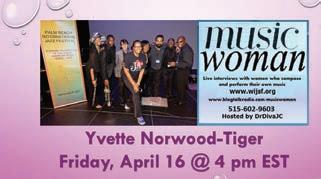
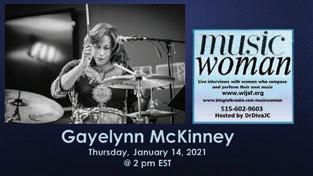
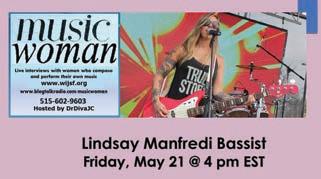

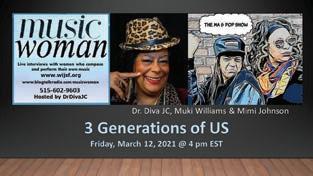

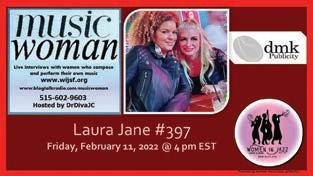


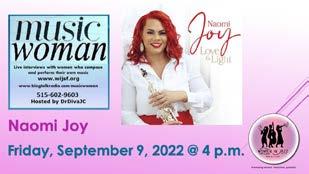
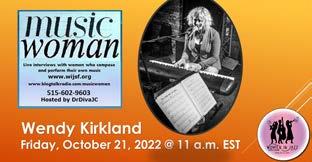

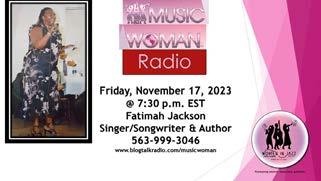
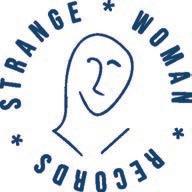


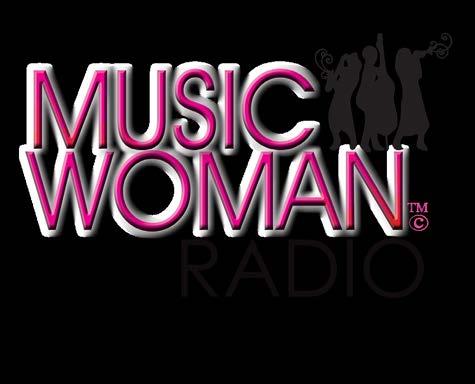
Since 2008, MUSICWOMAN Radio with host Diva Joan Cartwright (Diva JC) features women who compose and perform their own music and men who support them. Music, the sound of the shperes, begins in the womb! ~ Diva JC Call in on (515) 602-9603, hit #1 to talk to the host www.blogtalkradio.com/musicwoman






One day I got an email from an unknown organization, asking me to present my career with ups and downs for a women’s online audience. Sibongile sent this mail to me from Johannesburg, South Africa. Of course, I accepted. I researched GJW on Facebook and realized what a great initiative this is. When men and women refer to musicians they worked with, mostly men’s names come up. Rarely are women mentioned. In a way, as a non-male musician, you are invisible and unheard of.

This was the first year of the pandemic, so it felt like a window to the outside world had opened. To communicate with people on an international level made me feeling less alone. I made my presentation the first time I saw Sibongile online. On this Zoom, every Thursday, at least one musician, composer, facilitator, or activist shares her story. Little by little, together we change the narrative by creating a supportive network with all these fabulous people from all generations from all over the world.
By the end of the first year, Sibongile and I had the idea to create an annual publication with information about every woman and non-binary person who participated. I put the first book together with my daughter, Nema Vinkeloe Uuskyla, a wonderful singer, violinist, and website professional who designed the book as a digital release. We aim to print physical copies. The idea is to promote the best possible distribution to facilitate access to references and information about other creative women and non-binary people.
Sibongile invited me to South Africa, but it was impossible to attract funding. We invited Sibongile to come to Sweden to create music together. Her first application for a visa was unsuccessful, but the second time, after much paperwork, she got the visa to travel to Sweden. We spent two intense weeks in a workshop, concerts, and a performance involving a circus artist that was a magical experience!
Rehearsals with Annika Törnqvist, electric bass, Nema Vinkeloe Uuskyla (voice, viola), Gaeya (voice, small percussions), Sibongile Anna Buda (upright bass), and me on saxophone and flute were enchanting. The first recording was at a professional studio. We only had a quartet because one singer, Gayea, was too sick.

We recorded original compositions by the band members and added two free improvisations. The second recording happened at a private home, with drummer Vanja Holm, who provided the bass for Sibongile. I’ve known Vanja Holm for many years, and we worked together on and off, though we developed different paths in music. We have always been supportive of each other. It felt great to bring Vanja and Sibongile together to record music. It turned out to be great trio music, improvised but melodic and structured.
We had many talks about the situation for women in the music universe, about how to find a safe environment to learn an instrument, develop music skills, improvisations and solos. We discussed how to grow with other people and about how difficult it is to reconcile a music career with a family. Age discrimination is always a looming problem, and the public face of society is superficial and appearance-oriented.


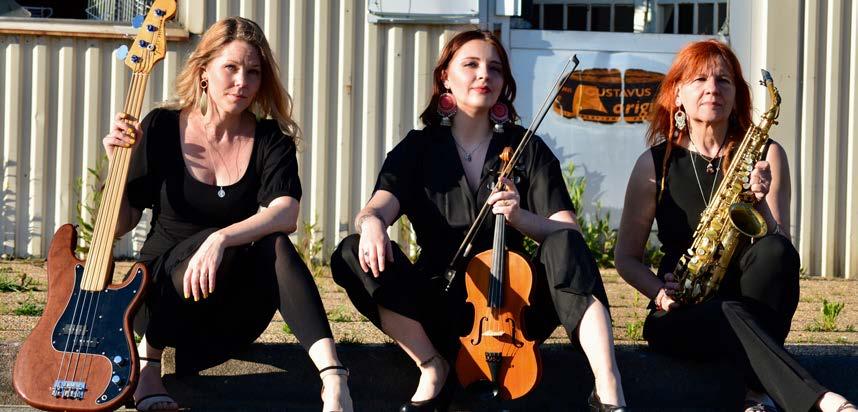
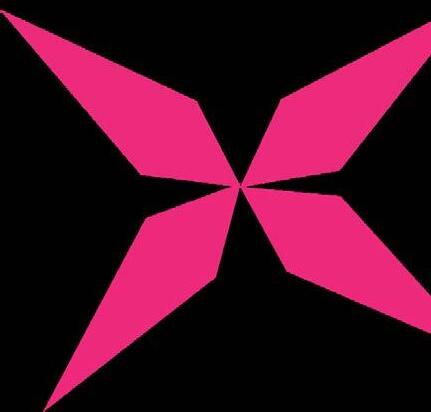

We had conversations about how important it is to be supportive of each other and to be part of a network from which we invite each other for gigs, workshops, and lectures.
We dream about a festival that travels from one country to another that features musicians, composers, producers, associations from all generations, and all expressions related to jazz, a common international global language, infused, transformed, and used by all of us. In January 2024, Sibongile came to Sweden to participate in the Women and Roots Project. https://gac.se/i-fokus,
My NAB Trio has invited different musicians to Sweden. Amy Reed (USA) was the first. Madhuri Jagadeesh was invited from India with vocalists Jataveda Banerjee, Mythili Ananthraman, and Jagadeesh M.R., and Anna Sibongile Buda visited from Mamelodi, South Africa. This project continues. We will release an album with Sibongile, Daydreaming, on SodaMusic. https://www.sodamusic.se/nabtrio-43896467
Biggi Vinkeloe plays saxophone, flute, composes, and conducts workshops, projects, social activism, and her company Open Horizon Records. She is a past International President of WIJSF. www.biggivinkeloe.org
Anna Sibongile Buda plays double bass and is an activist who conducts workshops with youth, focusing on girls and women. She is the co-founder of Global Jazz Woman Hang (GJW) and the current International President of WIJSF. https://womeninmusic.co.za/musicians-list/sibongile-buda
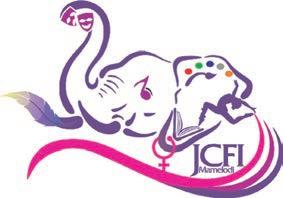

PAST INTERNATIONAL. PRESIDENT BIGGI VINKELOE

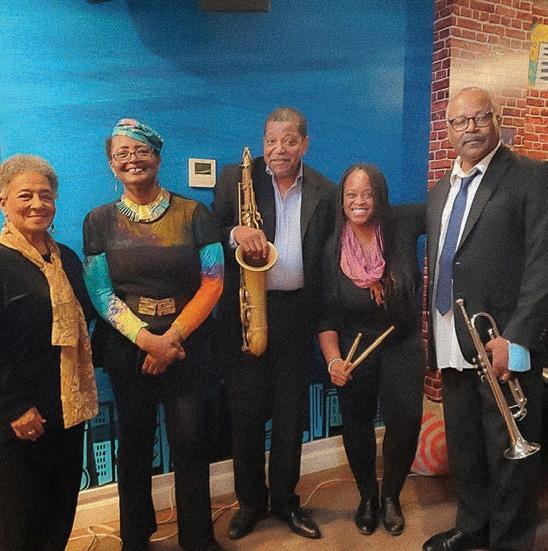
At Jazzmobile, I was introduced to Bertha Hope by Sharon Freeman, a fellow instructor. Our paths crossed again, through Cobi Narita, founder of the first Women’s Jazz Festival that George Wein managed, later. We worked with Kit McClure’s Big Band and, in 2013, after the passing of bassist Carline Ray, I joined Ms. Hope’s group Jazzberry Jam. Today, Bertha is the Vice President of Lady Got Chops Women’s History Month Music And Arts Festival, Inc., a 501(c)(3) formed in 2015, and the Lady Got Chops Jazz Festival, a collaboration between the late Lillithe Meyers, her daughter Tiecha Merritt, and me at their Jazz Spot Café in Brooklyn, New York. I learned HTML coding to create a calendar for the Jazz Spot and, after its closing in 2009, I continued to promote Women in Music as a celebration of Women’s History Month.
Bertha Hope celebrates her first husband Elmo Hope’s centennial with performances of his original music. He was a great pianist and composer, and an architect of Bebop piano. I play bass with Ms. Hope (piano), Gene Ghee (sax), Eddie Allen (trumpet), and Lucianna Padmore (drums). Also, I maintain the band’s website #Elmo@100, hosting biographies, links, and announcements for the band. http://ladygotchops.com/elmo100.html
Originally self-taught, Kim Clarke received three National Endowment for the Arts Jazz Study Fellowships to study with legendary bassists Ron Carter, Buster Williams, and Lisle Atkinson. Kim is a graduate of CCNY and Long Island University with B.A.’s in Communications and Music. She studied with Jazz Master Extraordinaire Professor Barry Harris, Jazzmobile Workshop, and was the house bassist at Barry Harris’ Jazz Cultural Theatre’s Art Blakey Breakfast Jam for four years. Her 56-year jazz career began with the National Black Theatre’s play, A Soul Journey into Truth in Guyana and Trinidad, and included a two-month West Coast USA tour with saxophonist Yusef Lateef. She had a year-long tour with the Joe Henderson Quartet.
For 24 years, she has been the first-call bassist in the internationally known Kit McClure Big Band. For 40 years, she toured and recorded with Joseph Bowie and Defunkt. She performed with the Teri Thornton Trio, for six years, and with the Bertha Hope Trio and Jazzberry Jam for 18 years. Currently, Kim performs in the Bertha Hope Quintet for the Elmo Hope Centennial (#ELMO@100). Recently, she completed a tour with Ronnie Burrage’s Holographic Principle Band.

Kim performed with Marylou Williams, the Mother of Modern Jazz Piano, saxophonist and educator Jimmy Heath, Jazz vocalist Leon Thomas, pianist and composer Sun Ra, vocalists Dakota Staton, Sarah Vaughn, Sheila Jordan, poets Sekou Sundiata, Ntozake Shange writer of the Obie Award-winning play, For Colored Girls Who Have Considered Suicide/When The Rainbow Is Enuf.
Kim’s arranging credits include Queen Latifah’s Winki’s Theme on the Black Reign album. She was featured in Guitar Player and Bass Player magazines for her work with Defunkt. She is listed on Ivan Bartowski’s Jazz Family Tree Map, pictured on The Girls In The Band photograph, the women’s version of A Great Day In Harlem photo, and listed in Who’s Who in Entertainment. Kim was featured in the 2021 issue of Musicwoman Magazine, in Women Who Pluck Strings.
Kim founded and produced the Lady Got Chops Women’s History Month Music and Arts Festival. During the Haitian Crisis of 2010, our participants donated over $1,400 to Doctors Without Borders. The festival provided four scholarships in the name of Barry Harris and Lillithe Meyers.
As an educator, Kim was involved with Mickey Davidson’s Dance Rhythm Dance Troupe and the Napoleon Revels-Bey Educational Ensembles, bringing the history of Dance and Jazz to schools in the New York area. She collaborated on developing a study program with Bertha Hope and company to mentor Bronx high school girls, through Jazz Studies at the Women’s Academy of Excellence. Previously, Kim taught private students, most notably Reggie Hamilton and conducting workshops at Boys Harbor in New York, Guitar Institute of Technology in London, Feierwerk Jazztage und Blues Workshop in Munich, Germany, Engelsholm Workshop in Denmark. Also, Kim conducted workshops at Penn State University, Portland State University in Oregon, Reed College, Columbia Basin College, and Whitman College in Washington State.

Her honors include the 3rd Edition of The Queens Jazz Trail Home of Jazz Legends Past and Present Map produced by the Flushing Council on Culture and the Arts in 2024. In 2019, she received the Queens Arts Fund Award by the Queens Council On The Arts, funded by the New York City Department of Cultural Affairs in partnership with the City Council. In 2015, she received the Jazz Heroes Award by the Jazz Journalists Association for promoting Women in the Arts. http://kimclarke.mysite.com/bio1.html
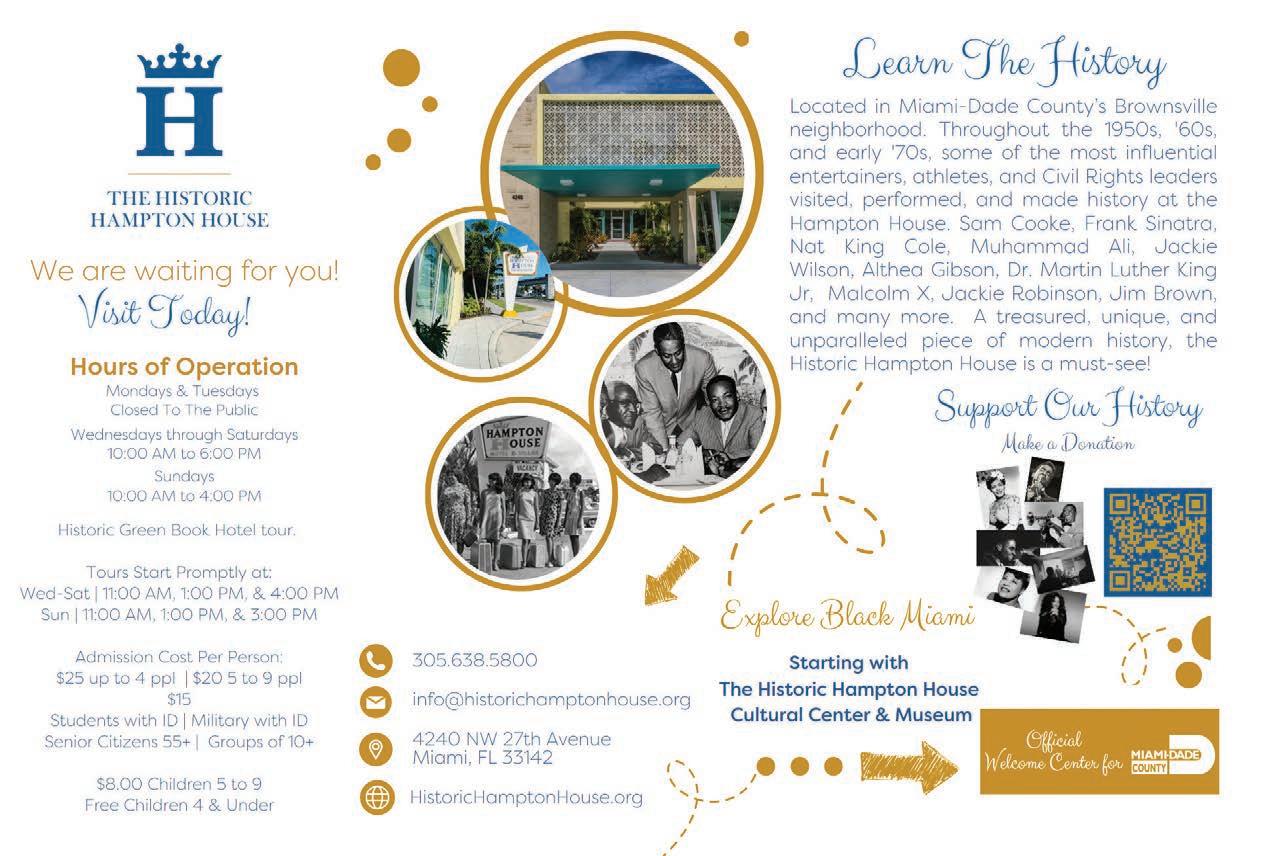
Written by Philip Michael Thomas & Sandi Morais
Illustrated by Imaj
In 1960, at 11, Philip Michael Thomas composed the lyrics and music to his first song, Troubled Child. PMT (as he is affectionately called) loves writing poetry, and composes music on piano and guitar. In 1996, In Costa Rica, he co-produced We Are the Children of the World, a children’s TV show with puppets and music in Spanish and English. In 1997, he produced the music for Sandi Morais’ children’s fitness show, Reggae Muffin for WLRN TV, in Miami, Florida.
Sacha and The Magic Cookie Maker coloring storybook was inspired by a 30-second jingle that Philip Michael Thomas composed in 1978, for his 4-year-old daughter Sacha Thomas. Philip took Sacha to the Magic Cookie Factory in Los Angles, California, and Sacha was fascinated, so Philip created a jingle entitled Magic Cookie Maker.
In May 1999, Sandi Morais taught Sunset Christian Academy in Miami, Florida, and she aimed to introduce her class to new material. Sandi asked Philip to create a CD of his children’s songs. Philip sent five children’s songs, The Big Old Elephant & The Teeny Weeny Mouse, Magic Cookie Maker, Granddaddy Said, I Love My ABC’S, and A.E.I.O.U. Sandi played the music and lyrics for her preschool class, and how quickly the children remembered the words amazed her.
She shared her excitement with Philip about the children’s reaction to his music. They transformed the Magic Cookie Maker jingle into a storybook about Sacha’s journey to the magic cookie factory. Sacha and The Magic Cookie Maker coloring storybook for children ages 3-9 years old became a reality in 2001.
The book was illustrated by Philip’s 11-year-old daughter, Imaj.
Then, Philip and Sandi created the Sacha and The Magic Cookie Maker musical fairy tale that premiered at the Fort Lauderdale Children’s Theater on January 12, 2001. The play was well received.
Later, that year Philip Michael Thomas was Artist in Residence at Hampton University in Hampton, Virginia, and Sacha and The Magic Cookie Maker was staged by the University for their year-end musical production.
The play was produced in 2005, at the Hollywood Performing Arts Center with Musical Director Melton Mustafa and at the Byron Carlyle Theater, in Miami, Florida, The Theater of the Riverside Church in New York City, and, in 2007, at Jones High School in Orlando, Florida.
In 2022, Philip and Sandi published the 20th Anniversary Edition of Sacha and The Magic Cookie Maker coloring storybook, illustrated by Herb Glen Bennett with activities for children to stimulate Auditory Skills, Critical Thinking, and enhance the Creative Imagination to help teachers and parents educate their children with music and storytelling. In 2024, the 23rd Anniversary Edition of Sacha and The Magic Cookie Maker coloring storybook, illustrated by Imaj, was re-published with entertaining sing-along music composed by Philip Michael Thomas. Philip and Sandi share similar goals in children’s education. They love to inspire, encourage, and empower the minds of children.

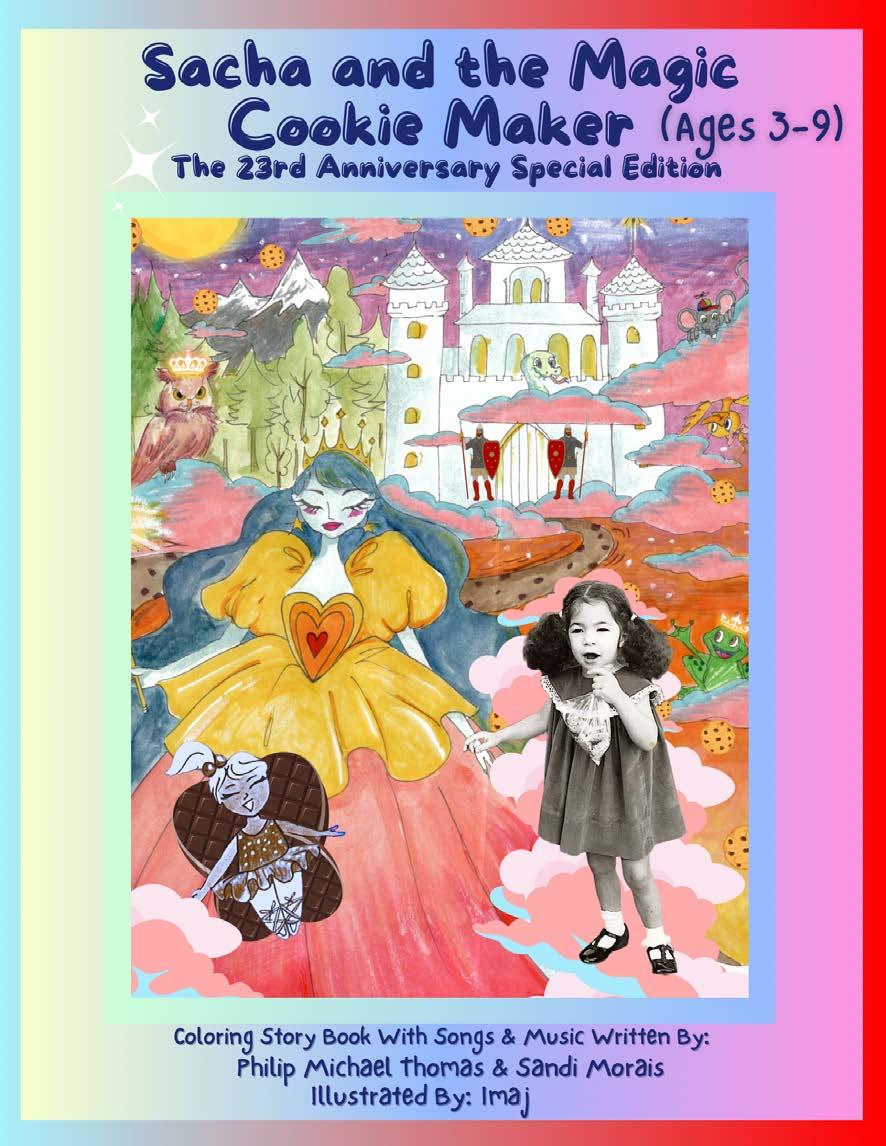
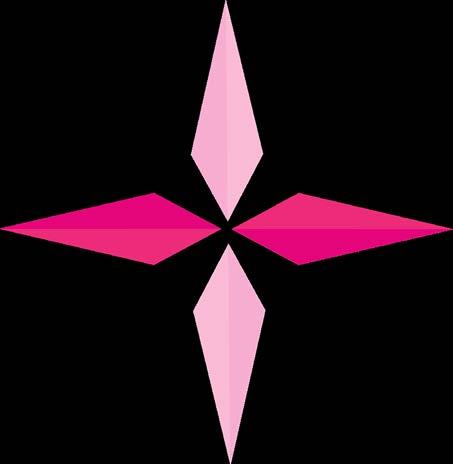
www.sachamagiccookiemaker.com www.sandimorais.com Instagram - sacha_magiccookiemaker

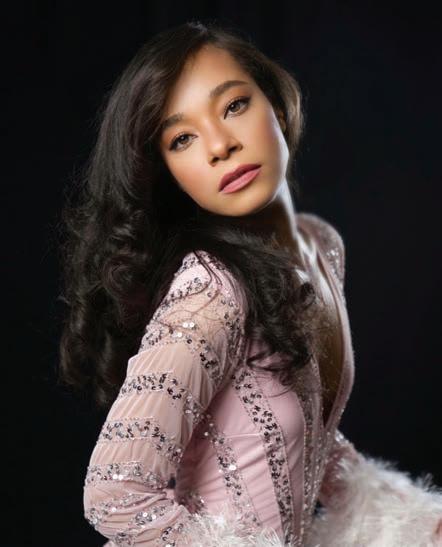
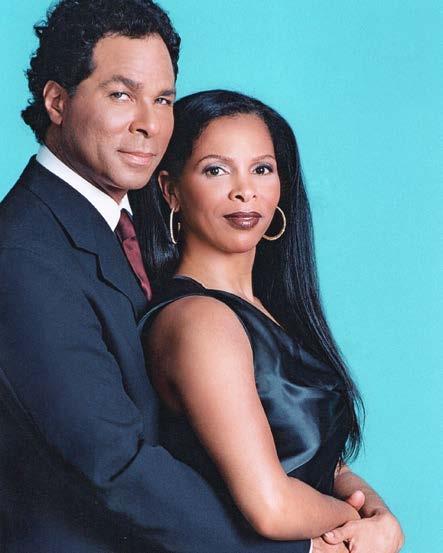
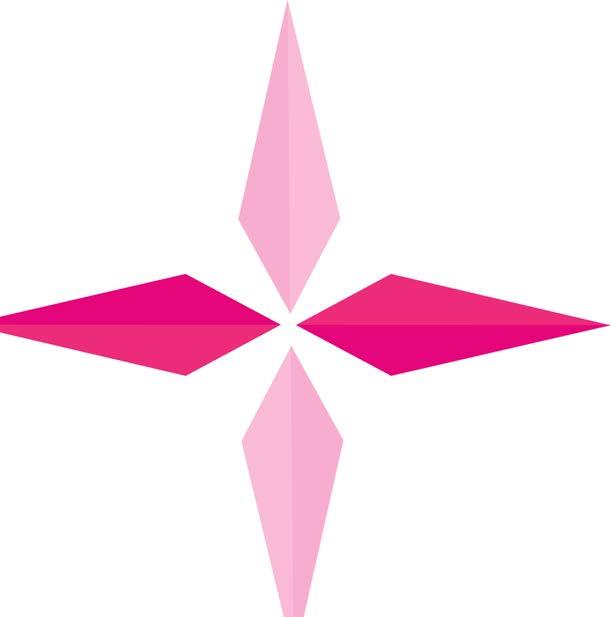
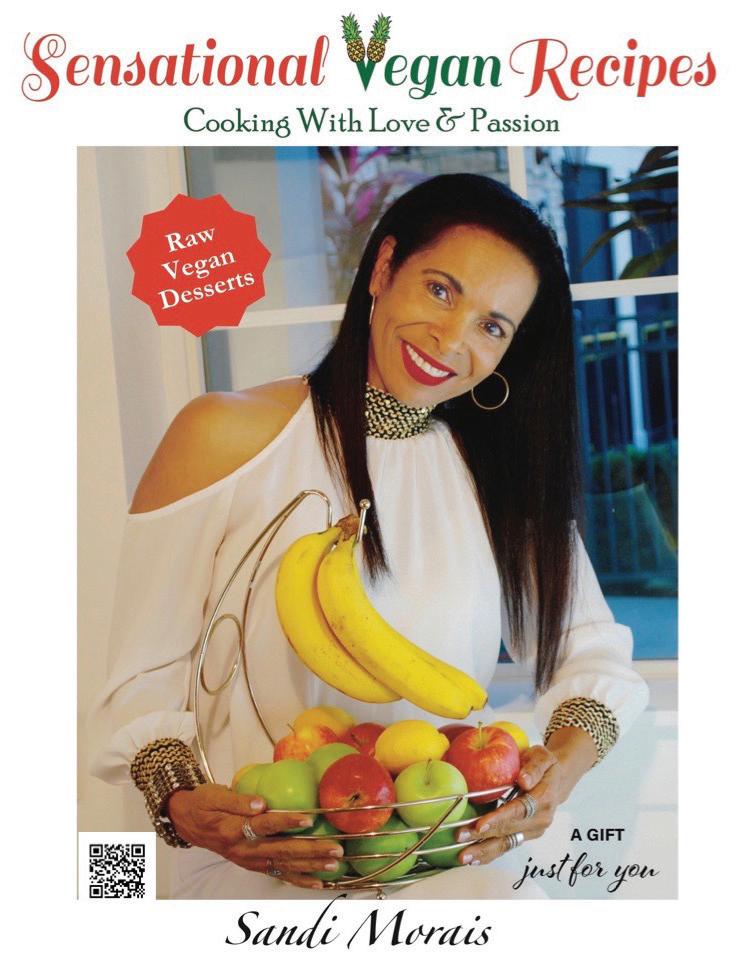
Sensational Vegan Recipes Cookbook is available at YouTube: @celebrityveganchefsandimor6013


Serves: 2
Total Time: 10 minutes
Ingredients:
2 medium firm organic zucchini
3 organic romaine tomatoes
1 tablespoon dried or fresh basil
1 tablespoon dried or fresh oregano
1/4 teaspoon garlic powder or fresh garlic clove
Dash of cayenne pepper
Sea salt
Method:
Wash the zucchini. Cut off the top. Use a spiralizer and spiralize the zucchini.
Put the zucchini noodles into a bowl. Wash your tomatoes, cut them into quarters.
Put the tomatoes into a chopper or food processor. Add basil, oregano, garlic, cayenne pepper and sea salt.
Blend ingredients together. Add pasta sauce to the zucchini noodles.


Going on a road trip was always on my bucket list. A few years ago, my daughter, Kamla was competing in the Ms. Olympia championship in Las Vegas, so I thought it was the perfect time to plan my road trip from Orlando to Las Vegas to see her compete.
I asked my partner, Philip Michael Thomas, if he would be interested taking a road trip to Las Vegas. He was enthusiastic. I planned the trip, quickly. But our vegan lifestyle overwhelmed me, thinking about what food items to take along the dusty road. I did not want to prepare a lot of food to take because we wanted to travel light, so we could enjoy the trip through the states. Immediately, I had to put on my chef hat and think of simple kitchen tools to carry.
Two kitchen tools that had to go were my handheld spiralizer and my portable chopper that did not require electrical outlets and would help me prepare simple healthy meals. I needed to buy organic zucchini to make pasta with organic tomatoes, herbs, and spices for the sauce. Also, I needed mixed nuts and organic apples for snacking, and water to keep us hydrated.
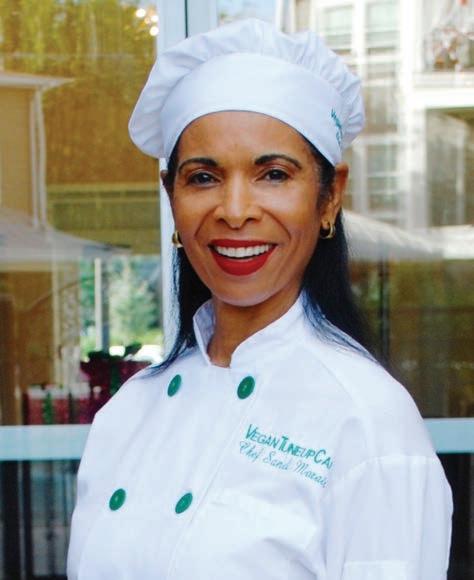
I was ready for the road trip. We set out early in the morning and drove through Florida to Mobile, Alabama. We snacked on apples for fiber and nuts for protein. We didn’t get hungry for several hours. At our first rest stop, we were ready for a meal.
In a rest area, I spiralized the zucchini, turning it into a bowl of zucchini noodles. I mixed the tomatoes in the chopper with herbs and spices for the pasta sauce to pour over the zucchini noodles. I was a happy camper. After eating our simple meal, we continued our exciting road trip. We stopped in Texas, where we visited friends and family.

The next morning, we drove through Texas, playing Jimmy Cliff’s Reggae CD. We laughed and talked along the road. The drive through Texas was long. However, the mountain views in Arizona were breathtaking. We stopped in Sedona, a magical place, where we walked around the city. Then, we drove to a rest area Flagstaff, where I made another zucchini pasta meal. We did a little sightseeing at Flagstaff, then drove to Las Vegas. This was a wonderful experience. My handheld spiralizer and portable chopper were great kitchen tools that helped us survive the dusty road.

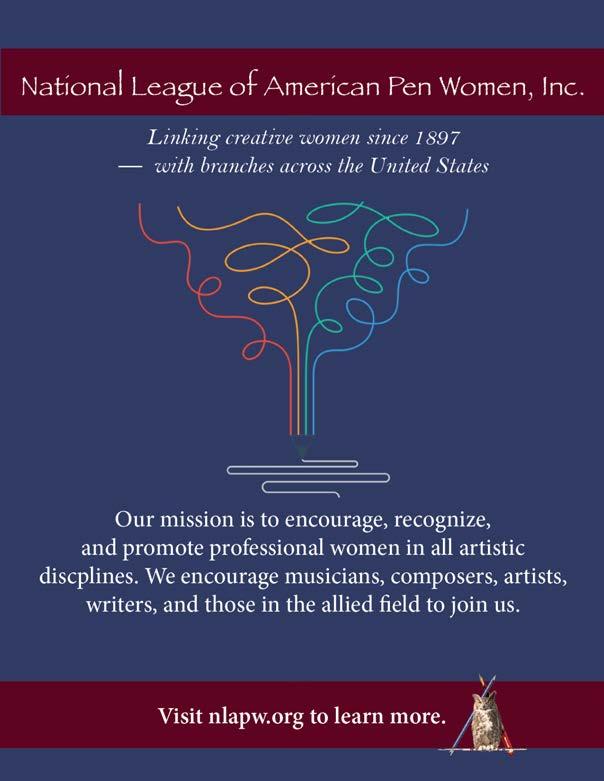
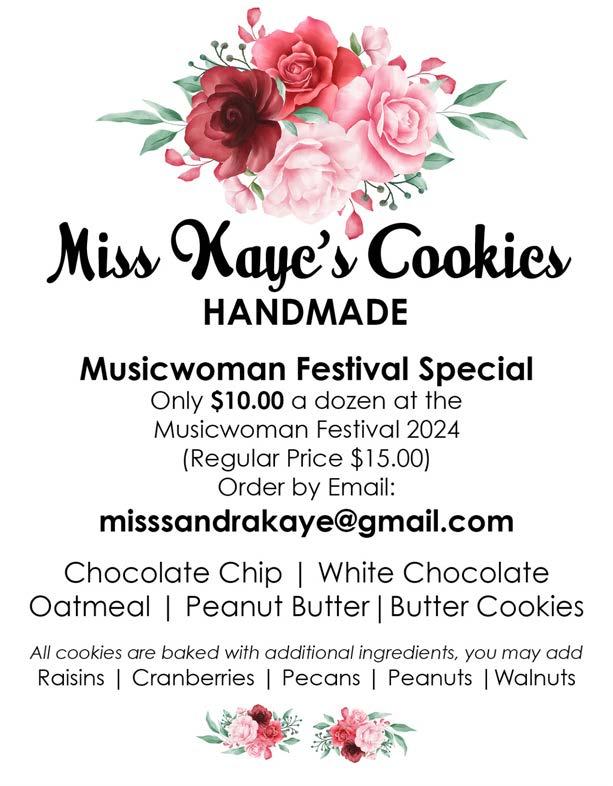
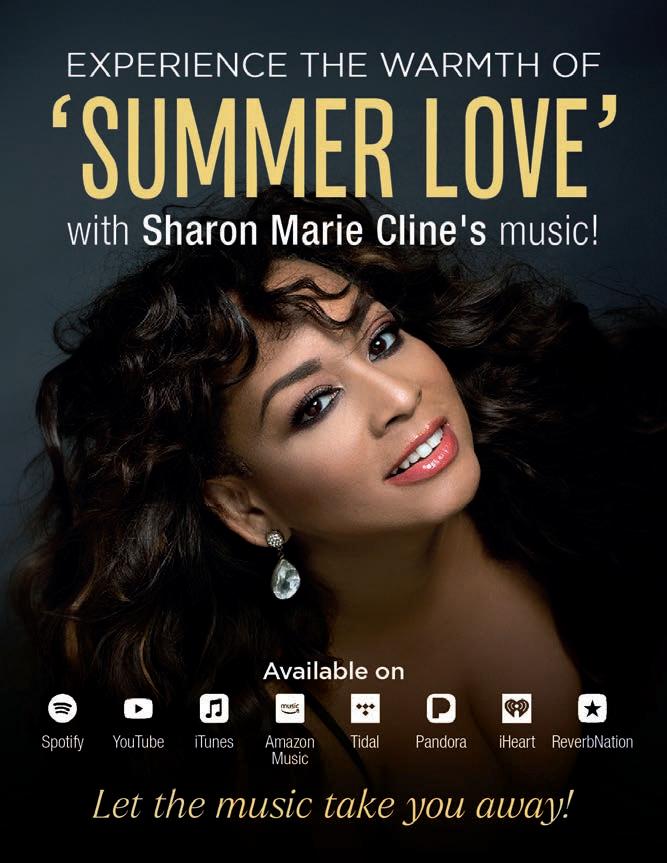
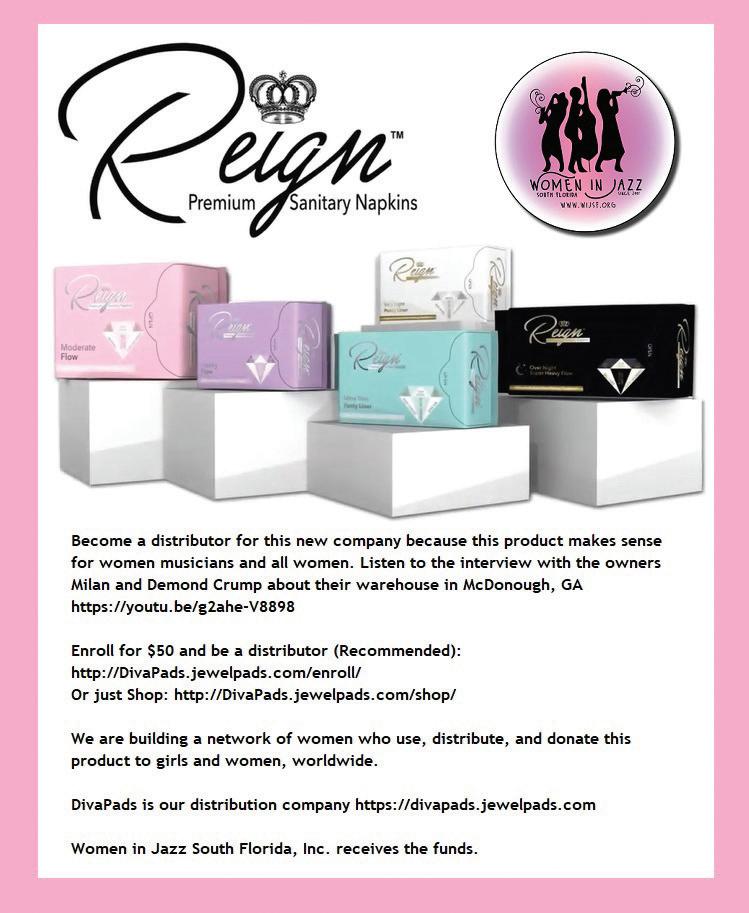
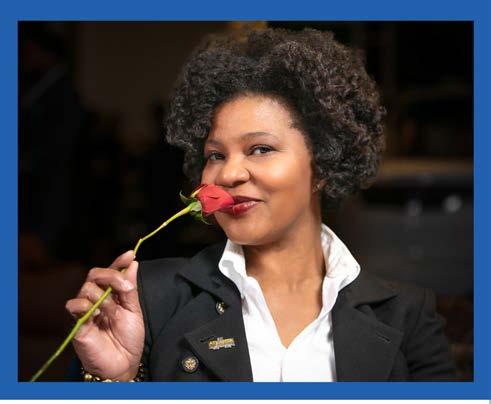

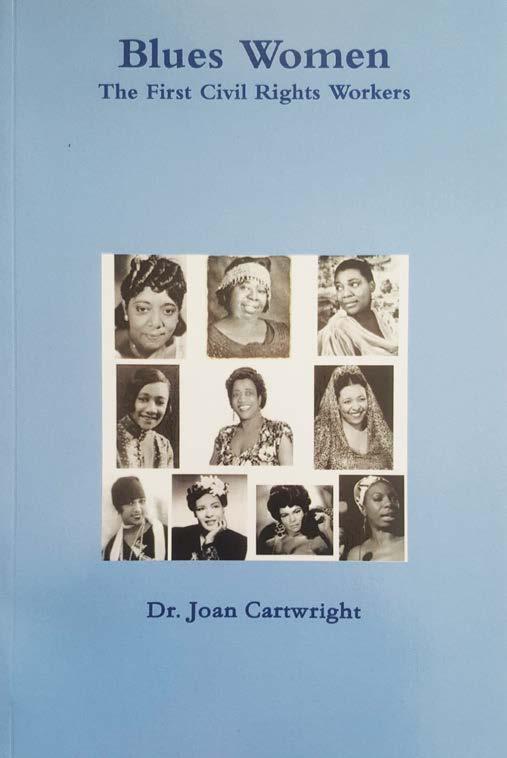
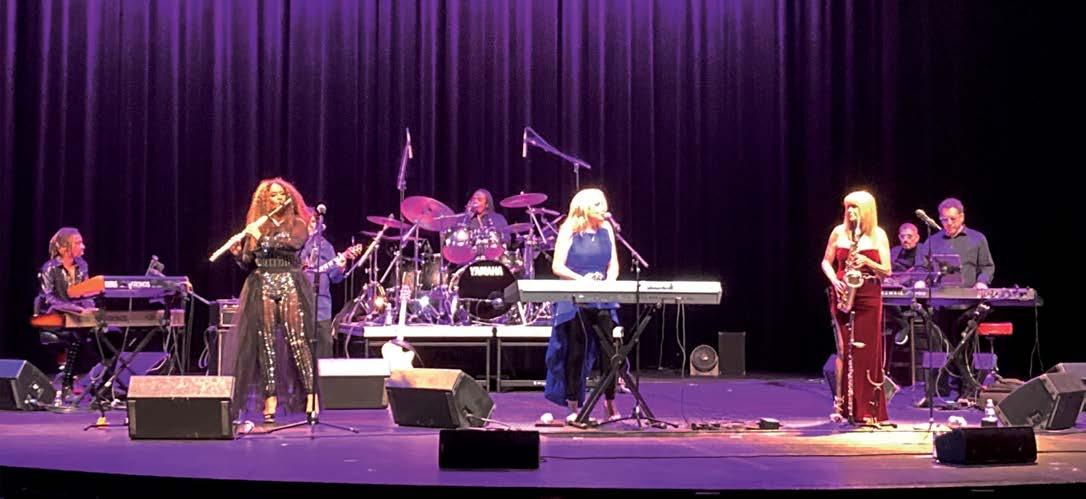


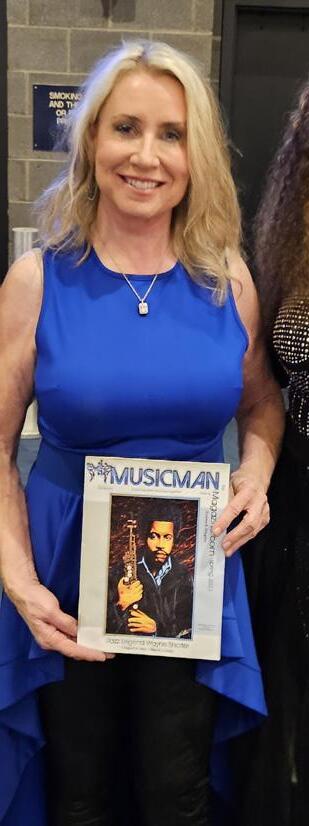
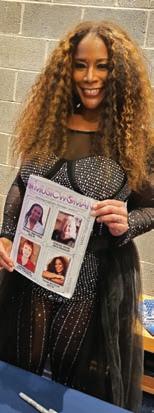

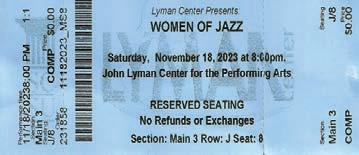


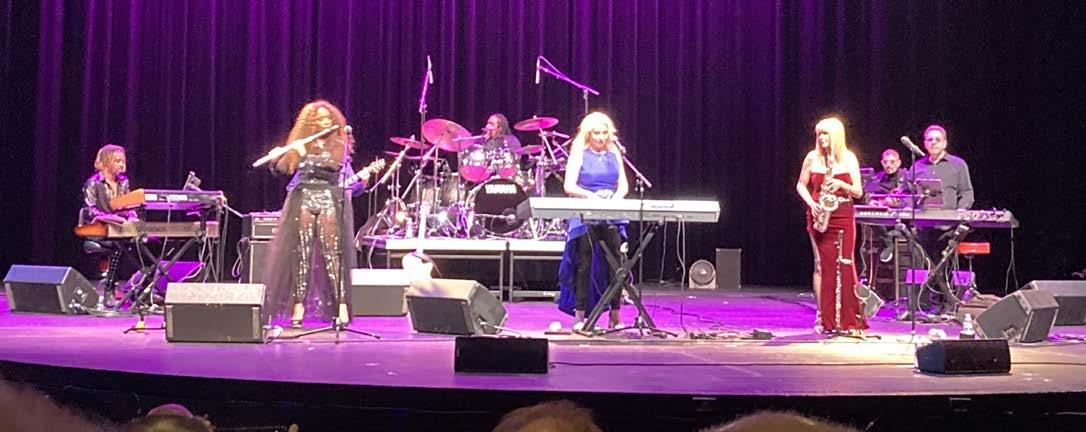

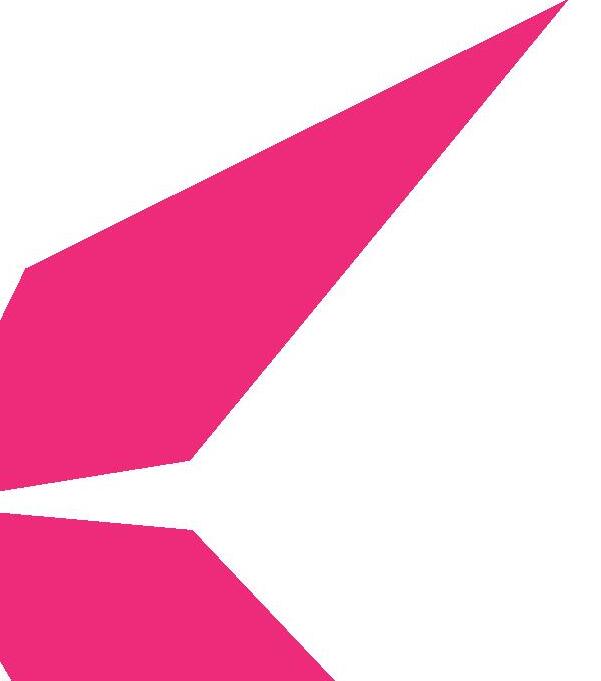
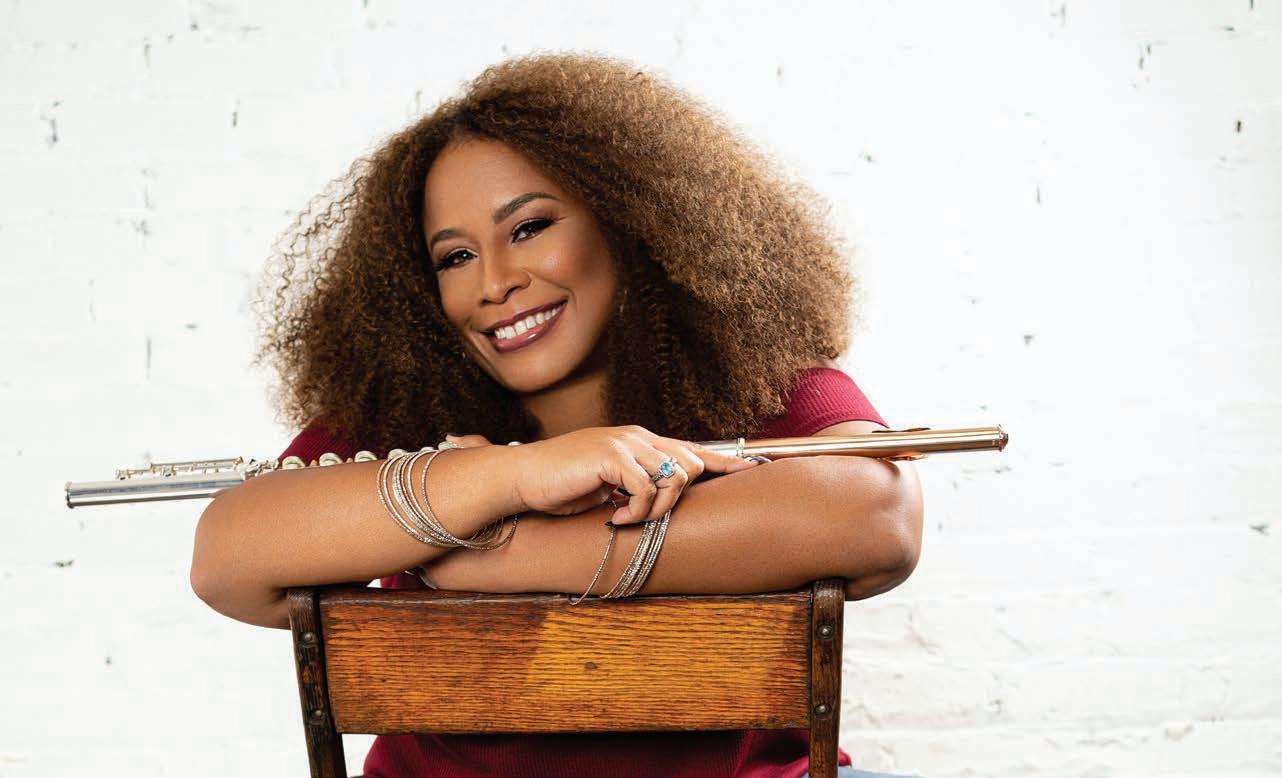
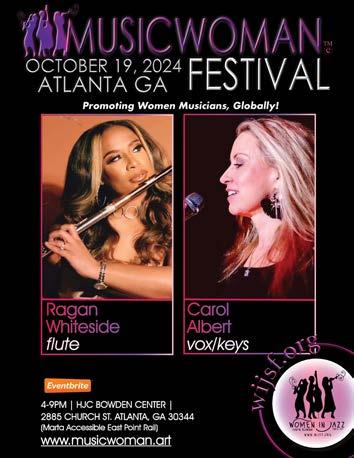



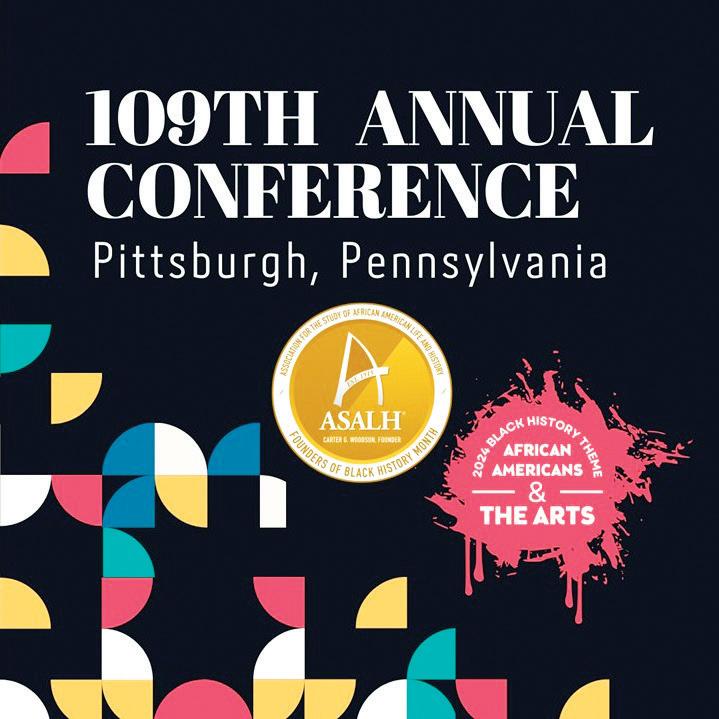
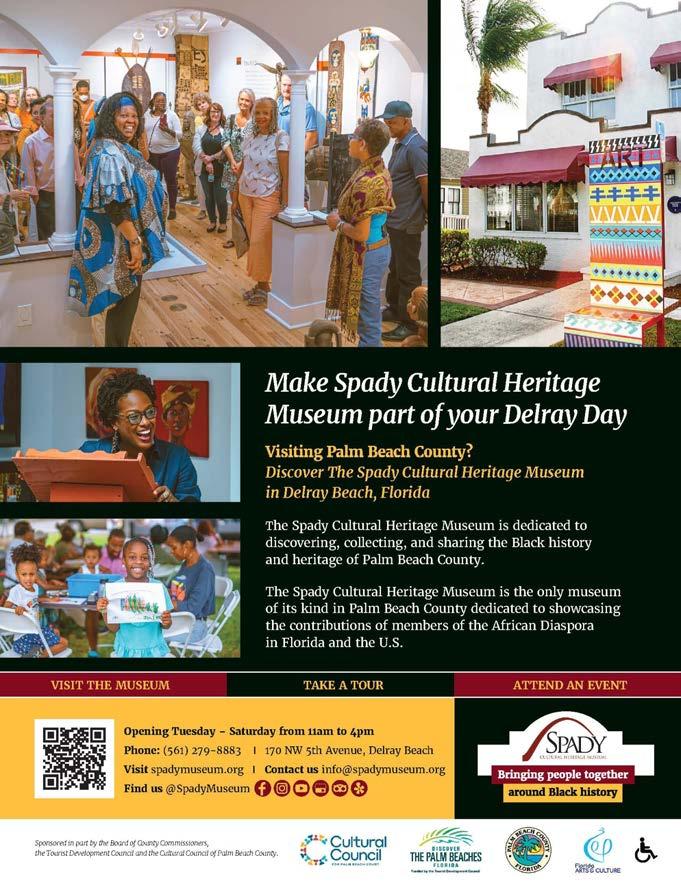
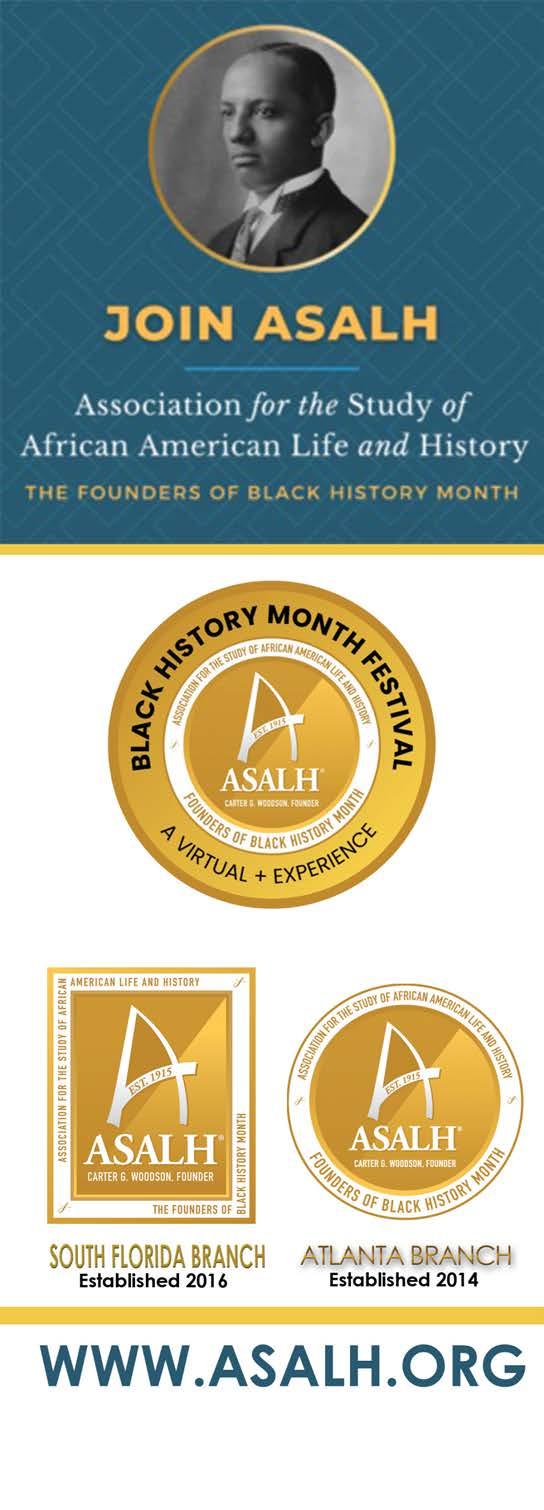

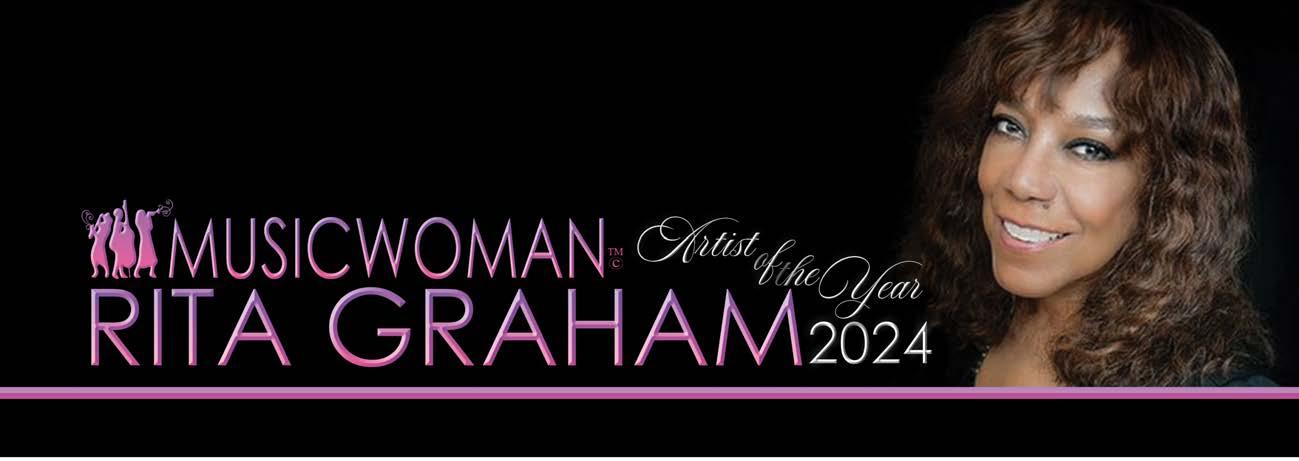
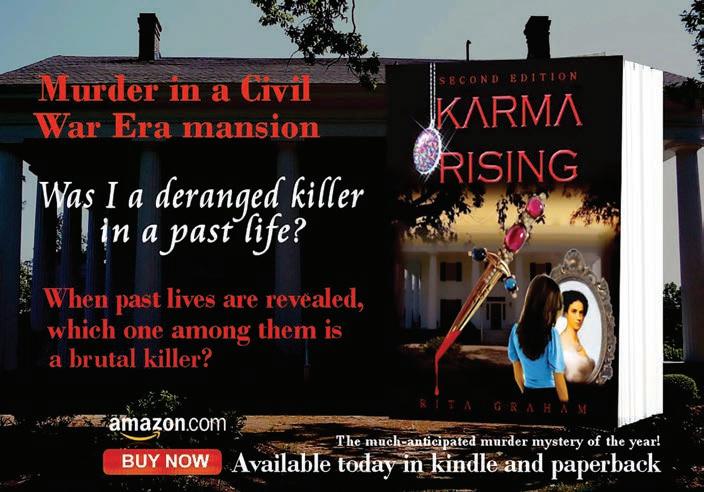
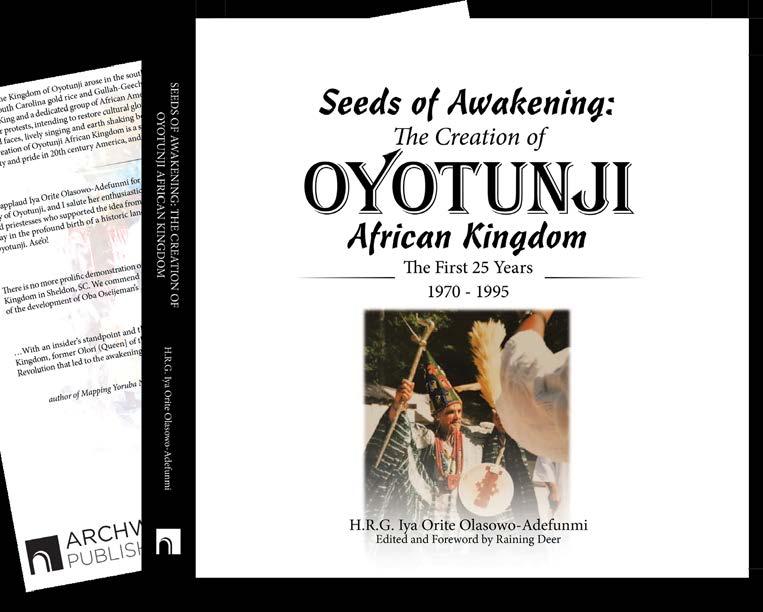
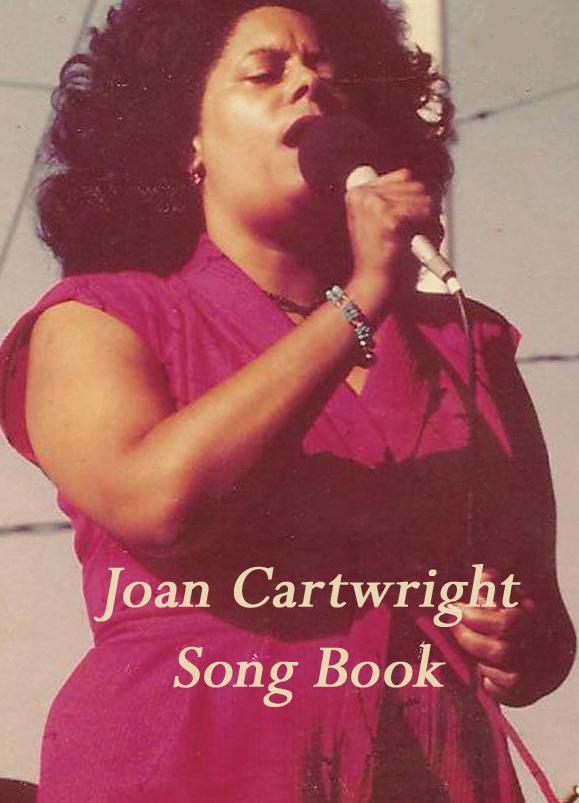

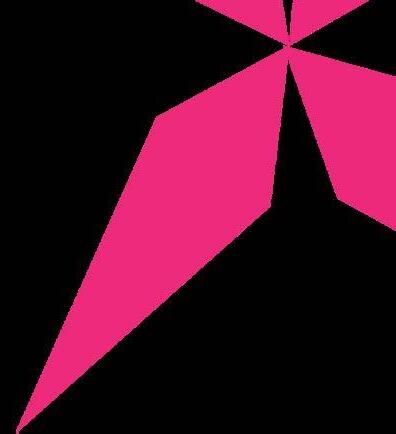

Greetings from our board members!
WIJSF connects musicians. A member and songwriter was seeking a piano player in her area. Through WIJSF she met a piano player and they worked on 3 new songs. Membership provides you with a database of exceptional professional women in jazz. Your $60 annual dues comes with a subscription to Musicwoman Magazine. Go to http://www.wijsf.com/join.htm
SouthSinceflorida 2007
You are a woman that composes, performs, produces music or you enjoy women musicians in concert. You're a perfect candidate for membership in our organization that promotes women musicians, globally. Membership is $60 annually and benefits include:
• Listing on www.wijsf.com/musicians.htm or www.wijsf.com/members.htm
• Announcements and events in www.wijsf.com/newsletter/newsletter.htm
• Submit a song to compilation CD distributed to Radio DJs www.wijsf.com/compcds.htm
• Features, articles, and discounted ads in MUSICWOMAN/MUSICMAN Magazine (2023)
• Interviews on MUSICWOMAN RADIO www.wijsf.com/radio.htm
• Affiliations: Donne in Musica in Rome, Women in Jazz in Serbia, and instrumental Women Association with women musicians, worldwide
• Connection with the South Florida Jazz List
Thanks for all of your support in our mission to promote women musicians, globally! Dr. Joan Cartwright, Founder/Director, Editor-in-Chief wijsf@yahoo.com 954-740-3398

By Lydia Harris, RN CCM B.Msc
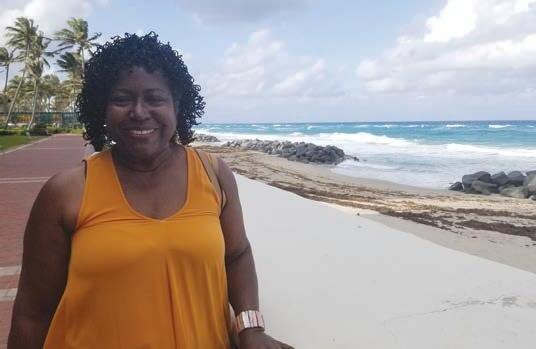
In the dynamic world of music, creativity flourishes alongside a deep appreciation for self- expression and wellness. For women musicians, this journey is multifaceted, often intertwining with experiences of inspiration, relaxation, and self-care. In recent years, the evolving landscape of cannabis legalization has opened new avenues for exploration, offering potential benefits for those who embrace its use responsibly.
Cannabis, with its complex array of cannabinoids and therapeutic properties, has long been celebrated for its ability to ignite creativity and enhance sensory experiences. From the rhythmic beats of reggae to the ethereal sounds of electronic music, cannabis has left an indelible mark on musical genres and subcultures, worldwide.
For women musicians, cannabis serves as a catalyst for inspiration and a source of relaxation in the midst of demanding schedules and creative endeavors. The soothing embrace of cannabis provides a much-needed respite from the pressures of performance, allowing for moments of introspection and rejuvenation.
At the heart of this intersection lies the profound connection between cannabis and creativity. THC is the primary psychoactive compound in cannabis that stimulates neural activity, potentially unlocking new pathways of imagination and innovation. For women vocalists, instrumentalists, composers, and musicians alike, cannabis can be a muse, guiding them through the creative process with clarity and insight.
Yet, as with any tool of artistic expression, balance is essential. While cannabis has the power to uplift and inspire, moderation and mindfulness are key to harnessing its benefits safely and effectively. Women musicians are encouraged to approach cannabis use with intentionality, respecting their own limits and boundaries. Moreover, in the pursuit of holistic wellness, it is crucial to acknowledge the potential risks associated with cannabis use. Excessive consumption can lead to cognitive impairment, dependency, and mental health challenges. Therefore, cultivating a mindful relationship with cannabis entails thoughtful consideration of dosage, frequency, and individual tolerance levels.
In the realm of music and cannabis, community plays a vital role in fostering support and understanding. Women musicians are invited to engage in open dialogue, sharing experiences, insights, and resources with one another. By building a network of mutual respect and empathy, we can create a culture of empowerment and solidarity within the music community.
As advocates for wellness and creativity, women musicians have a unique opportunity to shape the narrative surrounding cannabis use. By embracing transparency and education, we can dispel myths and misconceptions, paving the way for informed decision-making and responsible consumption practices.
In conclusion, the intersection of music, women, and cannabis is a tapestry of inspiration, innovation, and self-discovery. As we navigate this ever-evolving landscape, let us approach cannabis with reverence and mindfulness, honoring its potential to enrich our lives and fuel our artistic passions. Together, we can cultivate a culture of wellness, creativity, and empowerment for women musicians around the globe.
Be mindful on this journey of exploration and transformation, as the melodies of music harmonize with the rhythms of cannabis, uniting heart, mind, body, and soul in the pursuit of amazing musical fulfillment.
LYDIA HARRIS TREASURER
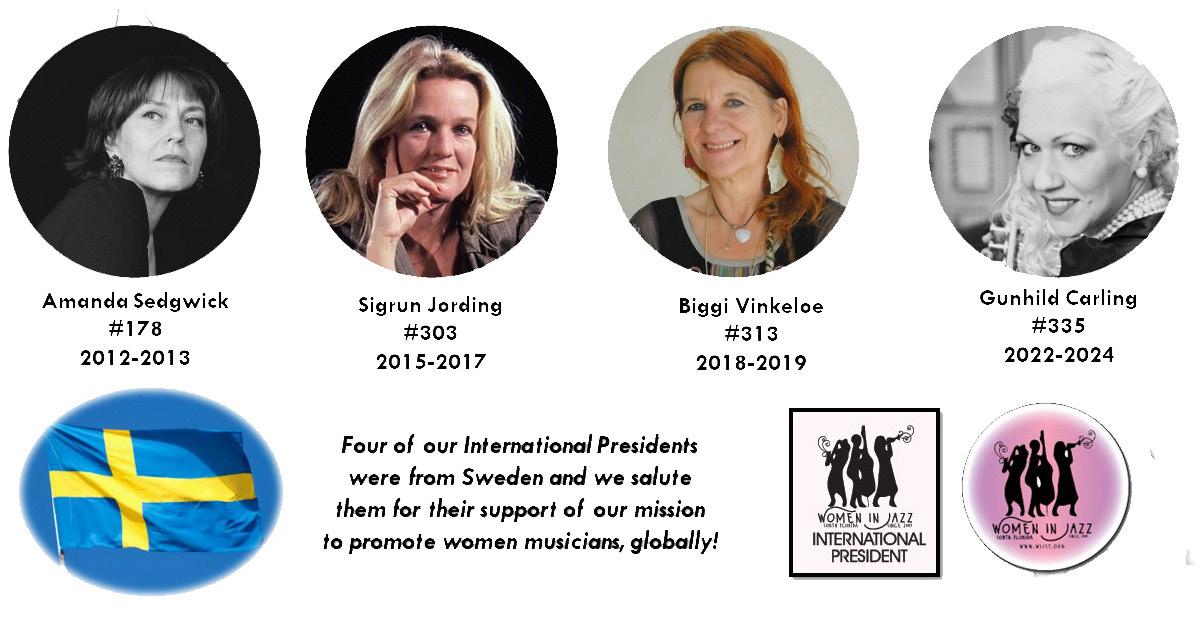
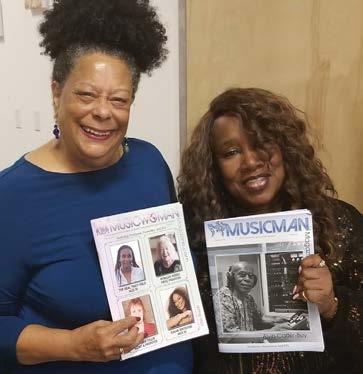

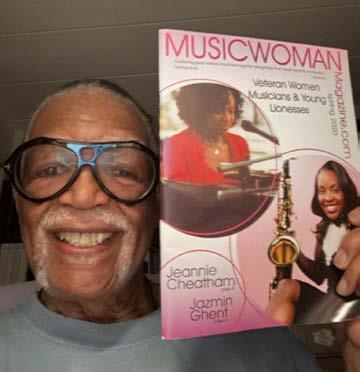

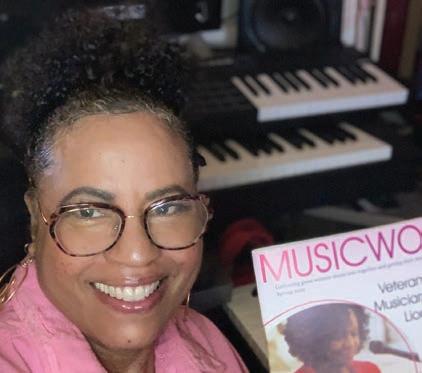

Coming Soon



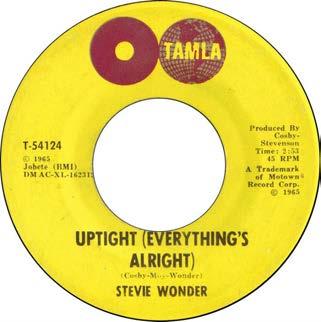
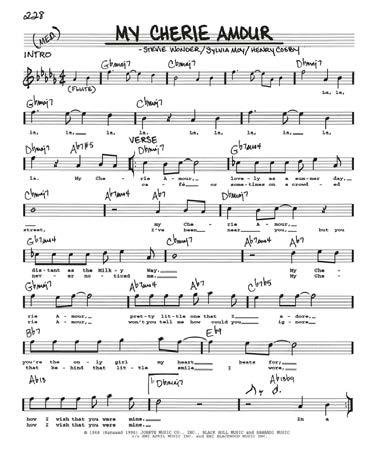
Sylvia Moy
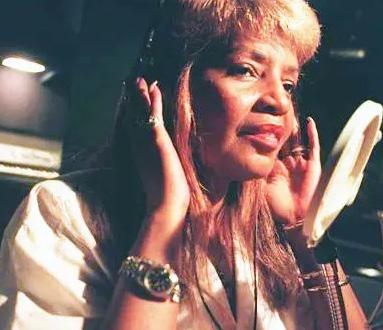
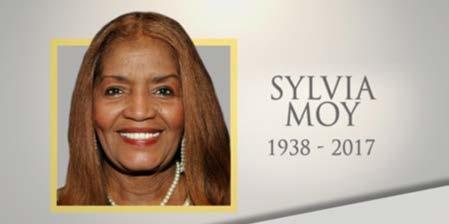
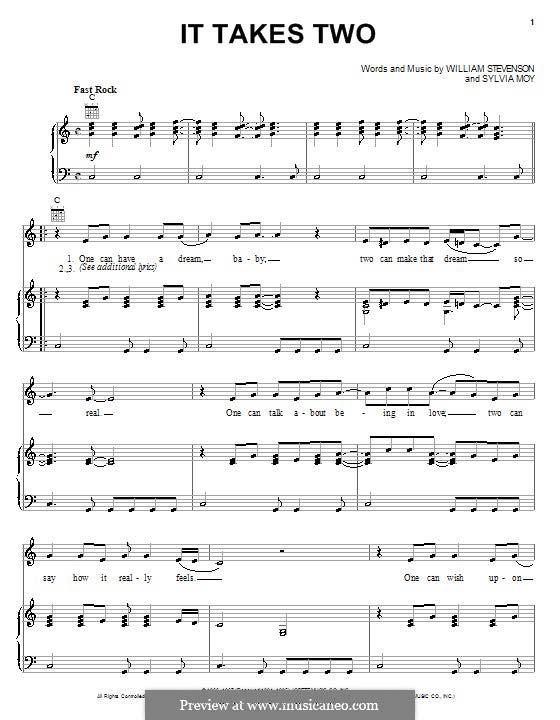
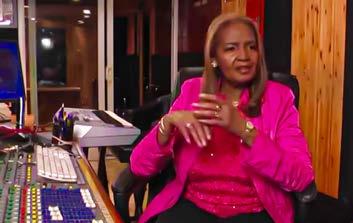

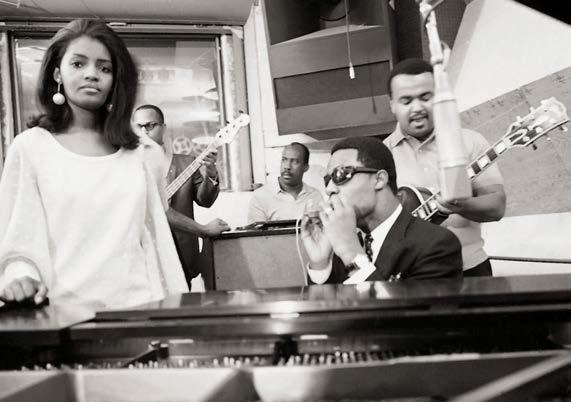
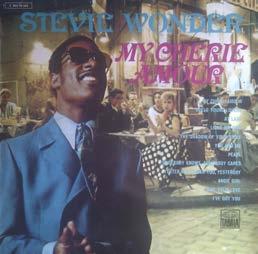
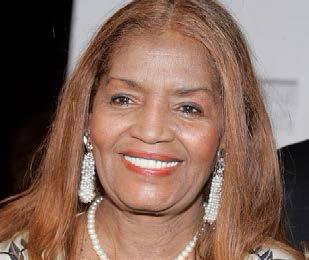
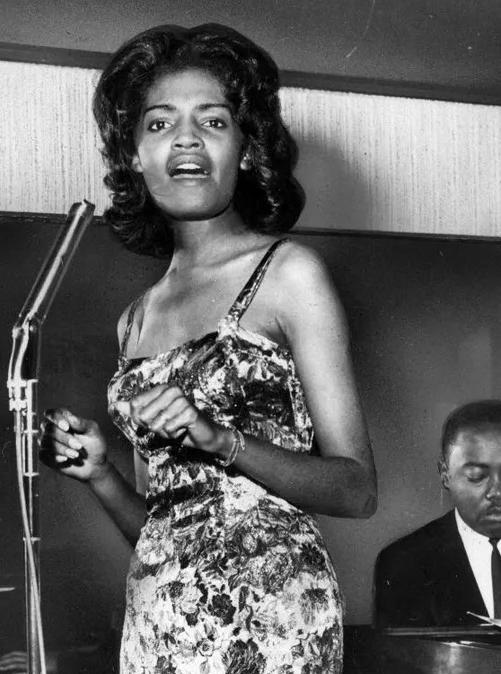

Musical variety tribute to the“Harlem Renaissance”
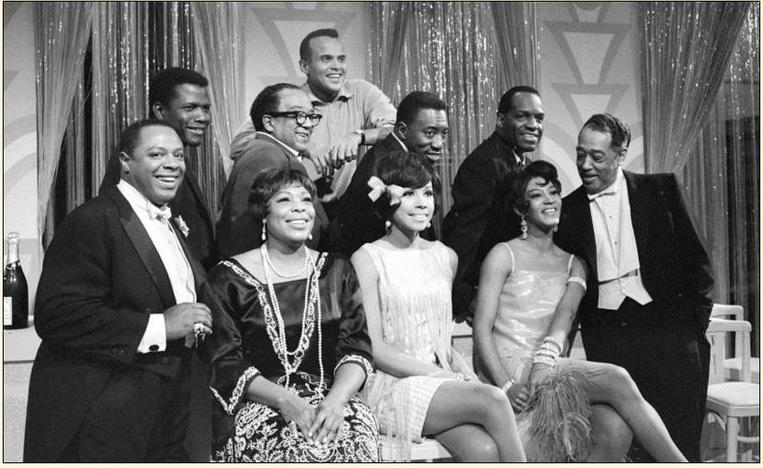
George Kirby, Sidney Poitier, Gloria Lynne, Langston Hughes, Harry Belafonte, Joe Williams, Diahann Carroll, Nipsey Russell, Paula Kelly & Duke Ellington (1966)
